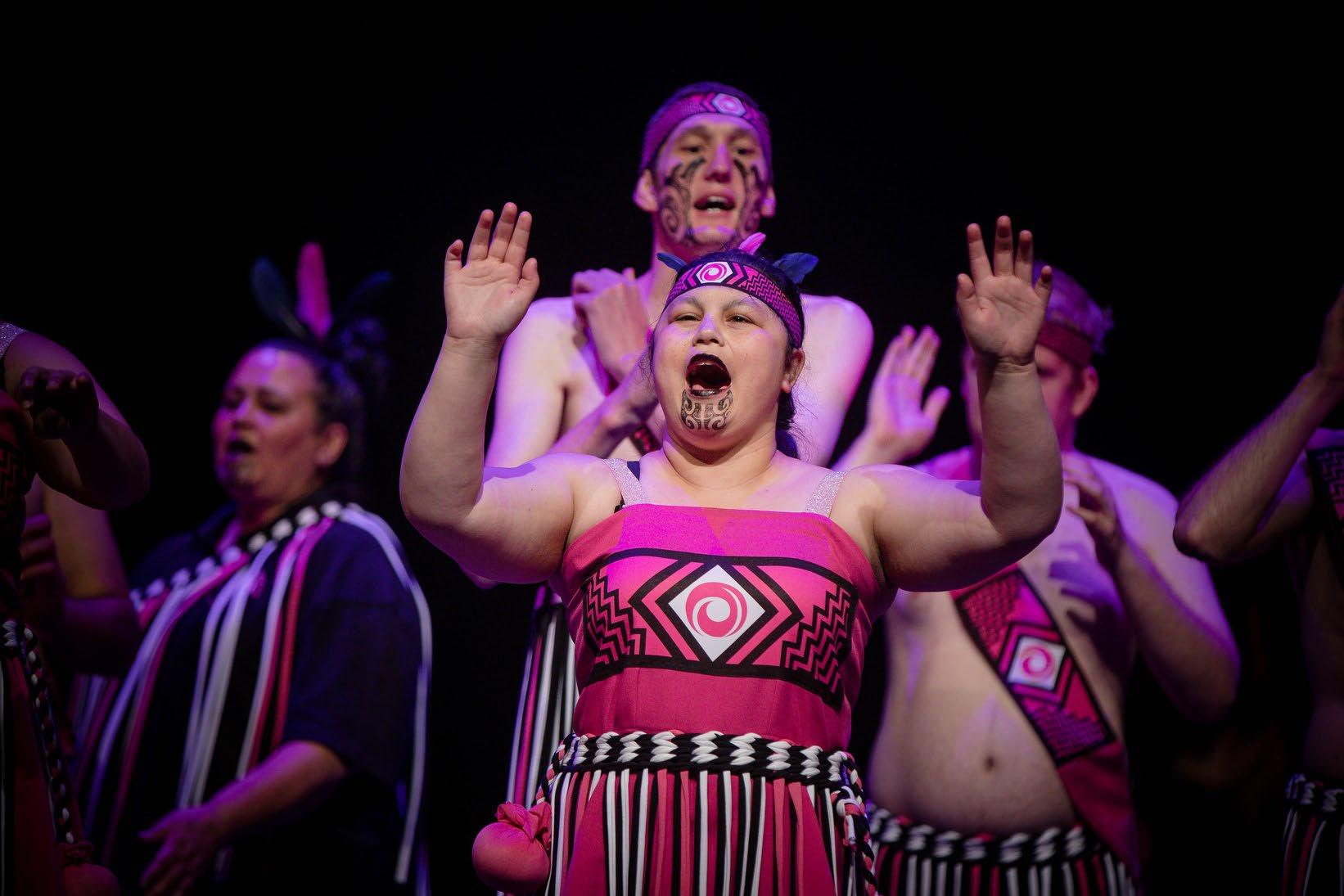






More than a million New Zealanders support friends and family members who are frail, unwell, or need assistance due to a health condition or disability.
The Carers Alliance of 59 national not for profits have worked together since 2004 to seek fair recognition and support for family carers.
But progress has been too slow. Carers NZ acts as the Secretariat for the Carers Alliance. Collectively we assist thousands of older people, people who have health conditions and disabilities, and family carers.
Our We Care! campaign is calling for true recognition and support for New Zealanders providing invaluable support for loved ones.
Can you help? Please sign our petition and consider some of our other campaign actions. Every action makes a difference in our work to support family carers.
Carers NZ and the Carers Alliance work with all political parties to raise awareness of family carers and their important role.
Our We Care! campaign calls for faster progress for carers, and strong outcomes in a new Action Plan for Mahi Aroha the Carers' Strategy. This Strategy, in place since 2008, needs a new Plan to ensure continued progress in important areas such as wellbeing and respite.

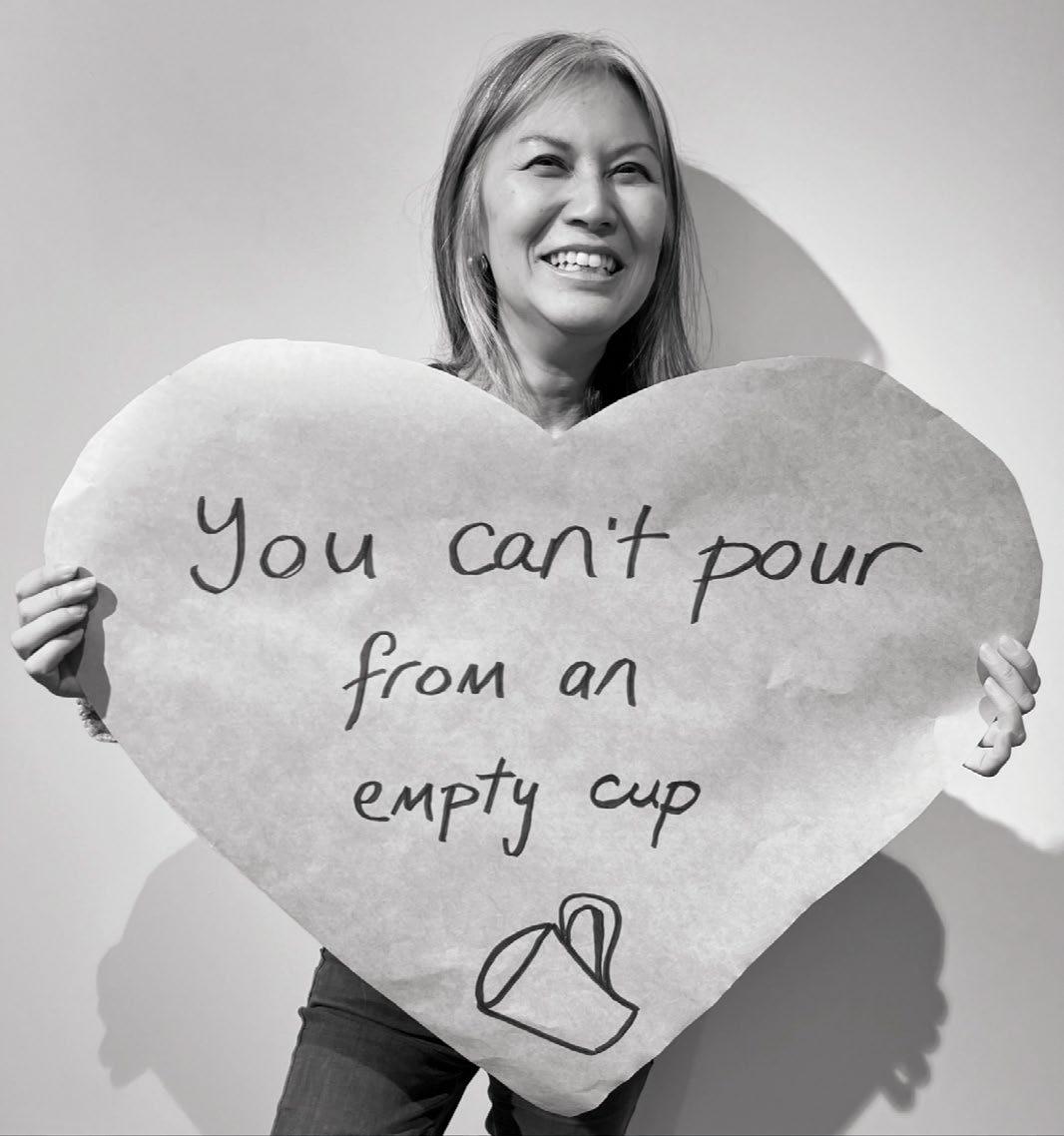
We need your help to get much needed progress
Please add your voice to ours! Visit wecare.nz to:
● Sign our petition seeking a Minister or Commissioner for family carers, and true support for family carers' mental, physical, and financial wellbeing
● Share a photo message or story – help us make family carers visible, so they can be valued
● Send a message asking for the progress we seek to every sitting MP from all parties, asking for their support for family carers
If you are a family carer, be assured that the Carers Alliance is working hard to ensure you get the recognition and true support you deserve! Join us - take action at https://wecare.nz
● Make a donation to support our work to ensure family carers are seen, heard, and supportedsee our donation form on page 12.







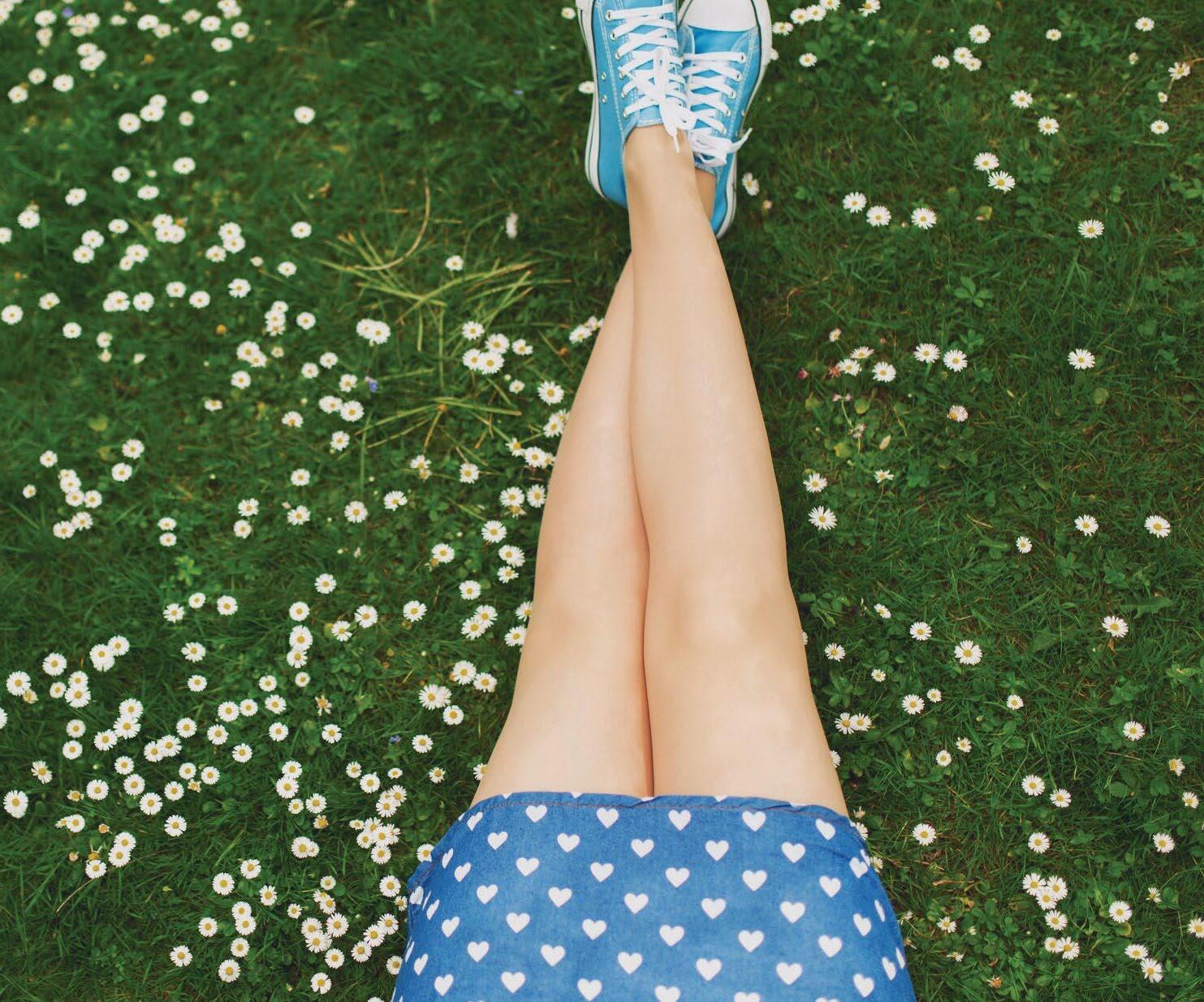

































































































































Self-Directed Funding is one of the options available to implement positive life changes resulting from a needs assessment.
Self-Directed Funding means that you are in control of how, when and who delivers your support at home and in the community. The funding is managed by a ‘host’ – such as Manawanui – but it remains your money, so you make the decisions and buy the things you need.
This means you choose the support you need, employ the people you want and manage your available budget. Manawanui (as a ‘host’) are available whenever you need, and we provide as little or as much support as you’d like.
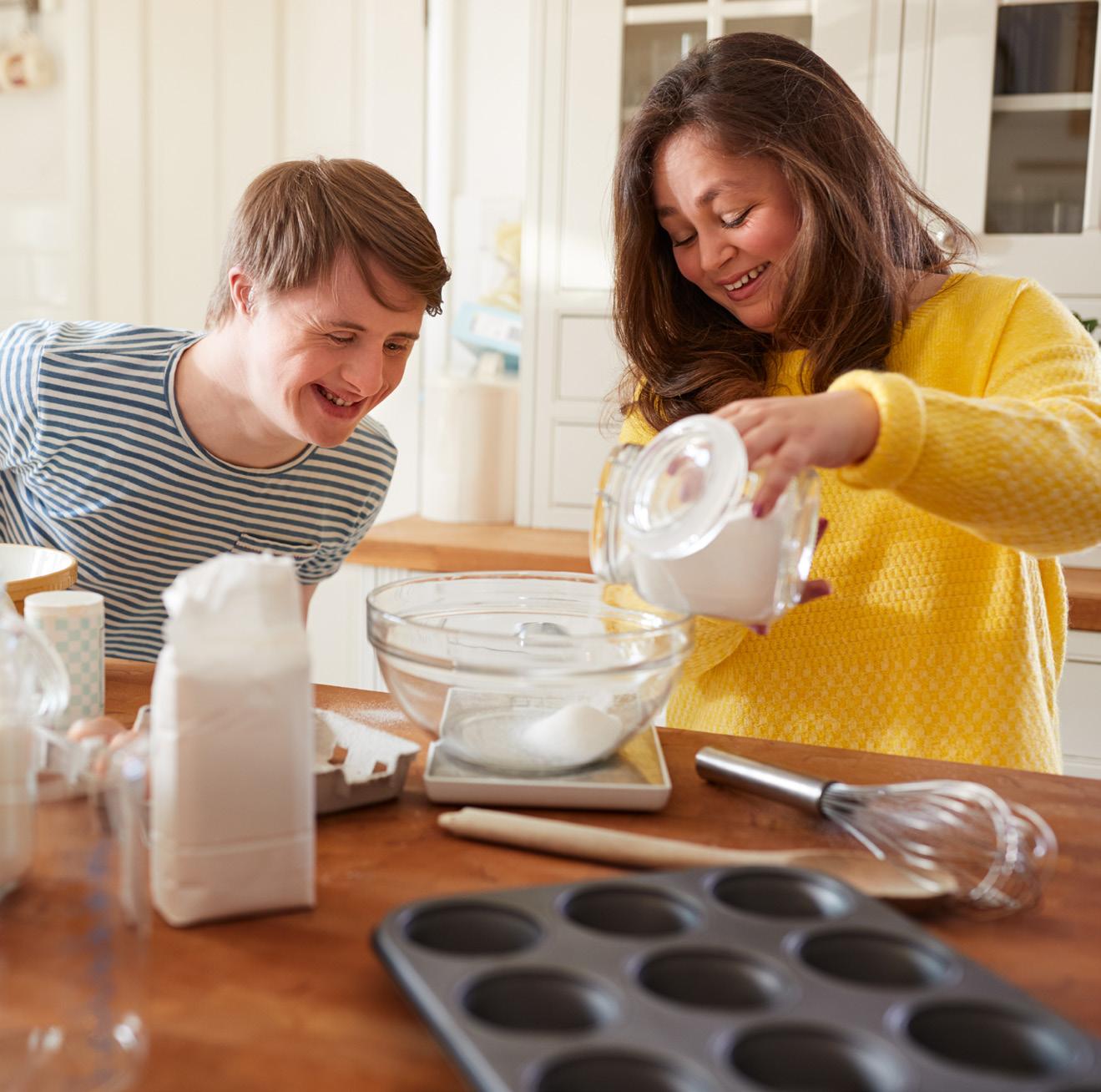

Benefits of Self-Directed Funding: It’s all about Choice and Control
• You choose who supports you –at the time and in a way that suits you
• Control in how and when you use your funding
• Contractor and item purchases are on your terms
• Greater care plan personalisation to suit your needs
Who can have Self-Directed Funding?
Anyone with a disability!
• Funding is not means tested so doesn’t affect any benefits
How are you? It's a simple, common question and one that is important right now.
In recent months we have held loneliness meetings in communities across the Waikato, and get-togethers north to south for family carers - part of Carers NZ's commitment to host 50 meetings to listen to our community after the isolation of the pandemic and last year's floods.
We know that you are coping, but that many of us are indeed feeling lonely and isolated. And maybe a bit afraid.
New Zealand's economy is in a lull, and tight restrictions have been imposed on how family carers in the disability space can access respite. There are looming question marks over support services in the health community, and we were troubled by comments in the disability review report released in August about relying more on 'natural support'. Natural support is government speak for family support. And families are already under a lot of strain.
Please know that Carers NZ, the Carers Alliance of 59 national not for profits, and the Coalition to End Loneliness (we act as Secretariat for both) are looking out for you. We witness the grassroots concerns of disabled people, older people, those living with life-limiting and chronic health conditions, and family carers every day. We loft these concerns to government, and needs assessment services, and Ministers, and those who control budgets and power to ensure you are heard. That you are seen. That you get fair support.
I was a co-founder of Carers NZ 30 years ago, supporting a partner who'd had a series of severe strokes. We lived in the Far North and our experiences navigating rural health and disability support are similar to those you are all still navigating now. The basics don't change. It's important that the basics always be covered well for people and whānau living with health and disability support needs. We exist to ensure the basics, at least, are there for you.
Family Care is part of the glue offered by Carers NZ that binds us together as a community. It doesn't have all the answers to every burning question, especially in this somewhat chaotic time. But we try to make it uplifting and fun.
Carers NZ continues to produce several print issues a year as well as digital ones. We are trying to keep it free, as we know money is tight for everybody. We really appreciate our partners and advertisers for their help so we can do this.
Some readers may wish to contribute to keeping Family Care and our other resources free for our community by making a donation to Carers NZ. If you can assist, we thank you - see our donations information on page 12.
We love putting together every issue, just for you. If you are feeling disconnected, or isolated and lonely (as we all sometimes do), we hope our stories spark ideas for things to do, ways to join in, thoughts about how to stay well or get better ... maybe inspiration for a shared outing or meal. Remember too that Carers NZ is always here if you need a listening ear or a helping hand. Like Dr Crane in the old Frasier TV series, we're listening. Take good care til next time.
Editor + Publisher Laurie Hilsgen
Advertising + Inquiries centre@carers.net.nz
Phone 09 360 7221
Brought to you by Family Care NZ
3 Vinegar Lane Grey Lynn, Auckland 1021
ISSN 1177-3340 Print 2230-4819 Digital
Disclaimer Articles and opinions do not necessarily reflect the views of Carers NZ, Family Care, or advertisers. Winners of our giveaways will receive their gifts within 6-8 weeks of each draw. By entering a reader gift draw your details may be provided to the supplier of that gift. If you do not want your details to be provided, note this on your entry form. Copyright is owned by the creators of images and graphics used in Family Care; see individual credits.
Cover image nazar_ab, istock
Photo credits, istock.com unless specified. p5 Mary Long; p7 Alexander Zam, AY Images, Patrick Daxenbichler; p8 Elena_Danileiko; p10 Srdjan Pav, Andreka, Olesia Bekh, Chris At; p14 Freepik; p16 Mary Long; p21 Overearth, Zuperia, Olga Kurbatova, Sho Photography, Flashvector, Rudzhan Nagie, Daria Voskoboeva, Ekaterina Zirina, Nataliia Nesterenko, Arcady 31, Elenabs, Mary Long, Paper Trident, Alexey Yaremenko, Diane 555; p21 Freepik; p25 Nastya Ph, Galina Kamenskaya; p30 Garth Badger, Piyaset; p34 Tommy; p36 Salim Hanzaz and rawpixel.com on Freepik; p38 Mary Long; p40-43 Pilli
You'll find our entry form for all reader gifts on page 8 or at https:// familycare.net.nz



Thanks to our supporters who help us keep Family Care free for our community




Webinar sessions available for ondemand viewing, hosted by an experienced continence nurse. Everything you need to know about supporting tamariki to have healthy toileting habits.

DISABILITY AND CONTINENCE FOR DISABILITY SUPPORT SERVICES
An online training module with practical knowledge and tools for supporting people with additional needs to achieve their best level of continence.
An online training module that provides an overview of dementia and continence for health professionals, or anyone supporting someone with dementia

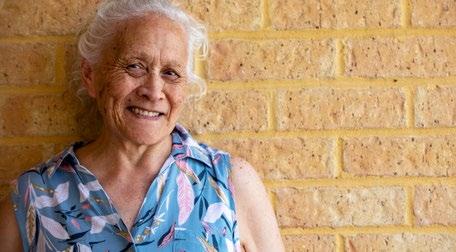

I have been following your weconnect.nz website and have had a lot of fun there. I've found many new things to do, focused on areas in my life where I know I should be taking more social risks. I have made a commitment to physical health, joining a gym through special deals on the exercise association website, and now I’m also trying pilates and Spanish through my local community provider. By accident I have come across so many people in my groups and activities who have disabilities, or who want to stay well in their older years, or who are caring for others. I feel refreshed after learning new things, moving my body and having new conversations – so it's win-win. I started very small, setting myself a few goals. I think the key is to not over-commit, making sure the activities I try are things I really enjoy rather than a chore. This ensures I still do things that I really have to focus my brain on - and I have to be realistic about what I can commit to and not fall apart if I miss a day or even a week. Doing something small regularly is a lot more beneficial than just having a momentary blitz with a new interest then feeling like a failure if you can't keep it up. My gym told me that most people who sign up in January start with a flurry of activity which dies off by February. I have committed to going three times a week and I’m still here! I feel very supported and the smiles I get from the young reception staff and other members brighten even the hardest day. I have found if I


Share your thoughts, or ask other readers for advice. Send your comments to centre@carers.net.nz, or post them to 3 Vinegar Lane, Grey Lynn, Auckland 1021.

put my all my gym clothes out the night before, make sure I’m set up even if I only go for a short time, I will follow through and go. I got into Spanish because it’s a country I have always been interested in. I started with 15 minutes a day on the free app Duolingo (I do it around waiting for the jug to boil or the oven to heat up). I’m now on a 136 day streak and have started lessons in person as well. The in-person lessons are a big step up but I feel like I’m using my brain in a great way. The people in the class are so nice, and we all support each other. Te Reo is next on my agenda and the classes are so popular I am on a wait list. A lady at my Spanish class said if you have 15 minutes a day to look at social media you can start writing a book, so I’m thinking about a romance writing course, but maybe that’s a step too far! Thank you for https://weconnect.nz
JANET, SUNNYNOOK
Links
Subsidised gym memberships
https://exercise.org.nz
Green Prescriptions www.tewhatuora.govt.nz
Language app
https://www.duolingo.com
As we approach the warmer weather I wonder if others need a hand, as I do, with spring cleaning and tidying the garden. 'Spring cleaning' is something I try to organise a few times a year. I spend so much time at home, so this is important to me. Getting rid of the spindly dead plants in my garden and planting new flowers and a few vegetables brings great pleasure. I am 84 and find it hard to sort things out as I used to. My two children live overseas, and my friends are older as well - we're all in the same boat. It can be hard to ask for help, or to find help if we can afford to pay for it. But there are helping hands in the community. It's worth a chat to your local Age Concern, or church, or at the library or in other community networks. I still put up a card at my local supermarket noticeboard. This is how I've found a local young man to mow the lawn and help with the garden, and also various cleaning services. The cleaning takes more mental energy than anything. My tasks can all be done in four to six hours. Yes, I pay for this, prioritising it over other things because it brings me peace and pleasure to have my home the way I like it. I have cut back on my garden and no longer grow large quantities of vegetables ... but at my age I don't need them. I am looking forward to new potatoes in the summer, lettuces, herbs, and tomatoes. I wonder how others get help to 'age in place'. I don't need assistance with showering and such and still do most things myself, but an occasional helping hand is most welcome!
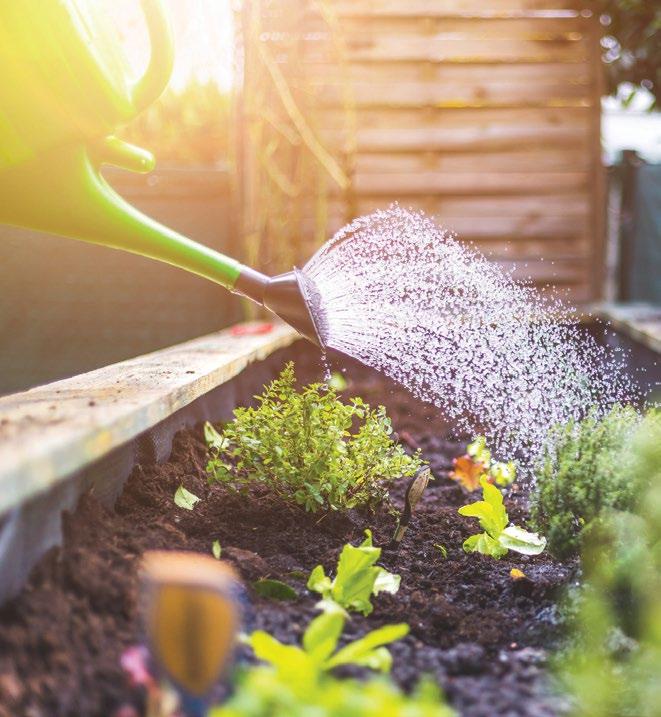
Share your stories and advice with other readers! Email your letters to info@carers.net.nz or post them to 3 Vinegar Lane, Grey Lynn, Auckland 1021.
A CALLAHAN,
BY E-MAIL
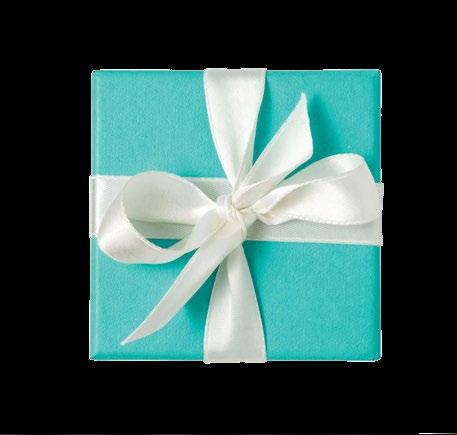
Visit https://familycare.net.nz to complete our gift form online, or return your form to be entered into every draw! One entry per person please.
We'd love to know more about what you like. Please tell us about yourself (tick any that apply)! *
I am a family carer for another/others
I am a 'self carer' managing my own health and disability needs
I care for a child or young person with a disability
I have (or assist someone who has) these conditions or health issues:
I work in health and disability
I work for a community organisation
I share my magazine with others (if so, how many others see your copy of Family Care: _________ )
I would most like to win these reader gifts:
I recently attended one of Carers NZ's loneliness hui. I had a lovely time chatting with everyone and sharing stories, tears and laughter. There was a great atmosphere and it was all very interesting. It got me thinking that loneliness is a problem for everyone. It can happen anytime, but is maybe something we can all address – hard problems require hard work. One of my favourite things is to nourish myself and others through food preparation. Others may enjoy this very easy recipe which can be multiplied for a big group and adjusted to fit personal tastes. It's quick to make, nutritious and hearty. I can pull this together with things from my pantry or fridge/freezer. Often these ingredients are on special at the supermarket. It’s a really nice thing to share kai with old friends and new. This recipe almost makes itself, so I can focus on the chat and not be worried about it going wrong. You also get tasty leftovers, which is always welcome.
MARAMA, HAMILTON
With this recipe, you don’t have to boil the pasta first: it cooks in the pot with the other ingredients. The pasta is coated in sauce with hearty sausage, veggies, and cheese. It only takes 30 minutes to make and is so good with a crusty roll or salad on the side. You can adjust your quantities according to taste and the number of people you need to feed. Try adding a bit of red wine or a little sugar to alter the taste if you want.
Olive oil to sauté the sausages (just a tablespoon)
Sausage (you can use any kind, fancy spicy chorizo or whatever is on special). Slice into ½-inch thick slices. I think 3 sausages per 2 people works well. Onion, one per 2 people
Physical Address
Mailing Address (if different)
Post Code
Update your details! Every form with an email address will go in the draw for a mystery prize. Email
Complete our online gift form at https://familycare.net.nz or email your form to supportteam@carers. net.nz or post to 3 Vinegar Lane, Grey Lynn, Auckland 1021. Name
* Please provide this information if you would like to receive our bulletins, offers, and other resources.


Red pepper, seeds removed and diced, or a few slices from a jar of preserved peppers
Garlic, as much as you like, but chop it finely Tomato paste, a tablespoon or so Kale or spinach, maybe 50 or 100g - use anything left over in the fridge
Diced tomatoes, 1 can for 2, and don’t drain them, use the whole can Herbs (dried basil, oregano, and fennel seed; I use a teaspoon of each)
Pasta - I use penne pasta, but other small noodles like farfalle or orecchiette will also work. You can use gluten-free pasta if desired.
Chicken stock - about a cup per 2 people
A handful of mozzarella cheese and parmesan to your own taste, or just use whatever cheese you have.
Method
Heat a large skillet or pot over medium heat and add the olive oil. Add the sausage slices, onion, red pepper, and garlic. Cook, stirring often, until the onion and peppers are tender and the sausage is cooked through and browned, about 5-7 minutes. Add the tomato paste and stir. Add the chopped kale, diced tomatoes and herbs of choice. Next, add your chosen pasta and chicken stock. Stir until combined. Cover with a lid (don’t peek) and cook for 8-12 minutes, stirring occasionally or until pasta is al dente. If the liquid hasn’t reduced enough, lower the heat and let it take a bit longer – it should be the texture of a thick tomato sauce.
Remove lid, stir, and add in the mozzarella cheese. Stir and cook until cheese is melted. Top with Parmesan and fresh basil if you have it. Serve warm. This pasta reheats well and is often better on the second day!
Editor Thank you Marama! See other loneliness busting suggestions, p20.
Watch, listen, read, share, learn!


Based on his best selling memoir of the same name, The Way, My Way is a charming life-affirming true story of curmudgeonly Aussie Bill Bennett, who decides to walk the famed 800 kilometre Camino de Santiago pilgrimage route through Spain to the tomb of St James. Step by step, this journey, undertaken by countless pilgrims over centuries, changes Bill's life. Bill and his wife, Jennifer Cluff, who stars in the film, led Carers NZ's 'extreme respite' trip with family carers from New Zealand along the 200+ kilometre Camino Portugués several years ago. Watch our own short film, and read about the trip, page 30. We recommend Bill's book and the movie, too! See the film at cinemas and on streaming platforms.
Writer and former broadcaster Judy Bailey shares new science and personal stories that have shaped her own path into older age in her book, Evolving. She tackles subjects like taking care of your body and mind through to organising finances, navigating health scares, grieving loved ones, and enjoying the finer things. "I want society to recognise the value of older people, of lives lived and experience gained," says Judy. "We live in an increasingly ageist society where older people are often portrayed as frail and doddery, but the reality is many of them are still working, achieving, supporting families and giving back to the community. I wanted to help people plan for their older years, and to live them as fully as possible." See our story about Judy on page 28. $39.99, Harper Collins. 2 copies to be won!


Join New Zealand family carers on their camino from Porto in Portugal to the famous Cathedral of St James in Santiago, Spain! Led by film makers Bill Bennett and Jennifer Cluff, the long walk was organised to raise awareness of New Zealand's 1m+ family carers. Walk along with Ian, Ruth, Marilyn, Vivienne, Jan and friends on their reflective journey to Finisterre, 'the end of the world'. Filmed by Bill Bycroft, and edited by Josh Gemmell. We thank Bupa NZ for its support for our camino project.
Please help Carers NZ keep its wellbeing programmes, Family Care and other resources free for our community. See page 12.
Words by Rachel Clare, photos by Jacob Leaf, illustrations and design by Vasanti Unka. No large garden required! Play Wild features a great mix of projects for a range of ages and attention spans, from quick, simple activities like petal pictures and miniature gardens suitable for preschoolers to more advanced projects like star topiary and celebration wreaths for older children. Along the way, tamariki will learn about many of Aotearoa’s native plants including kūmara, harakeke and kōwhai. Play Wild encourages children to develop a foraging mindset by making use of what they can find, with many activities only requiring materials such as plants, sticks, stones and bark. $29.
Win 1 of 2 copies
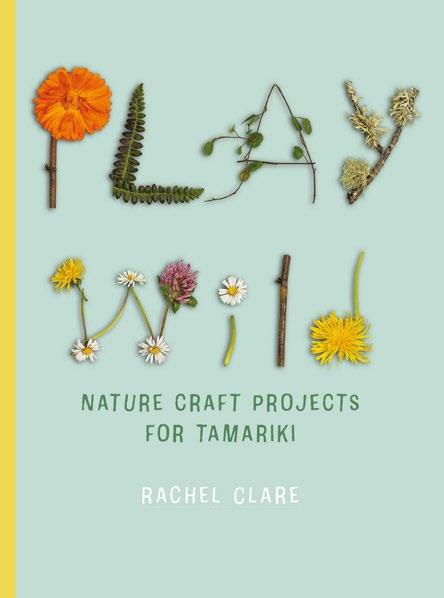

Mingle with others, try something new!
A mini-meditation: go for a stroll with no destination in mind, and no purpose other than to get some fresh air. Stop to look at flowers, trees, clouds and details you might have otherwise overlooked. Say hi to those you meet along your stroll!

Take yourself out for a book date. Go to your favourite café for some quiet reading time and a coffee, maybe with
WAYSLITTLETO LOVE YOURSELF
"Almost everything will work again if you unplug it for a few minutes, including you."
Anne Lamott
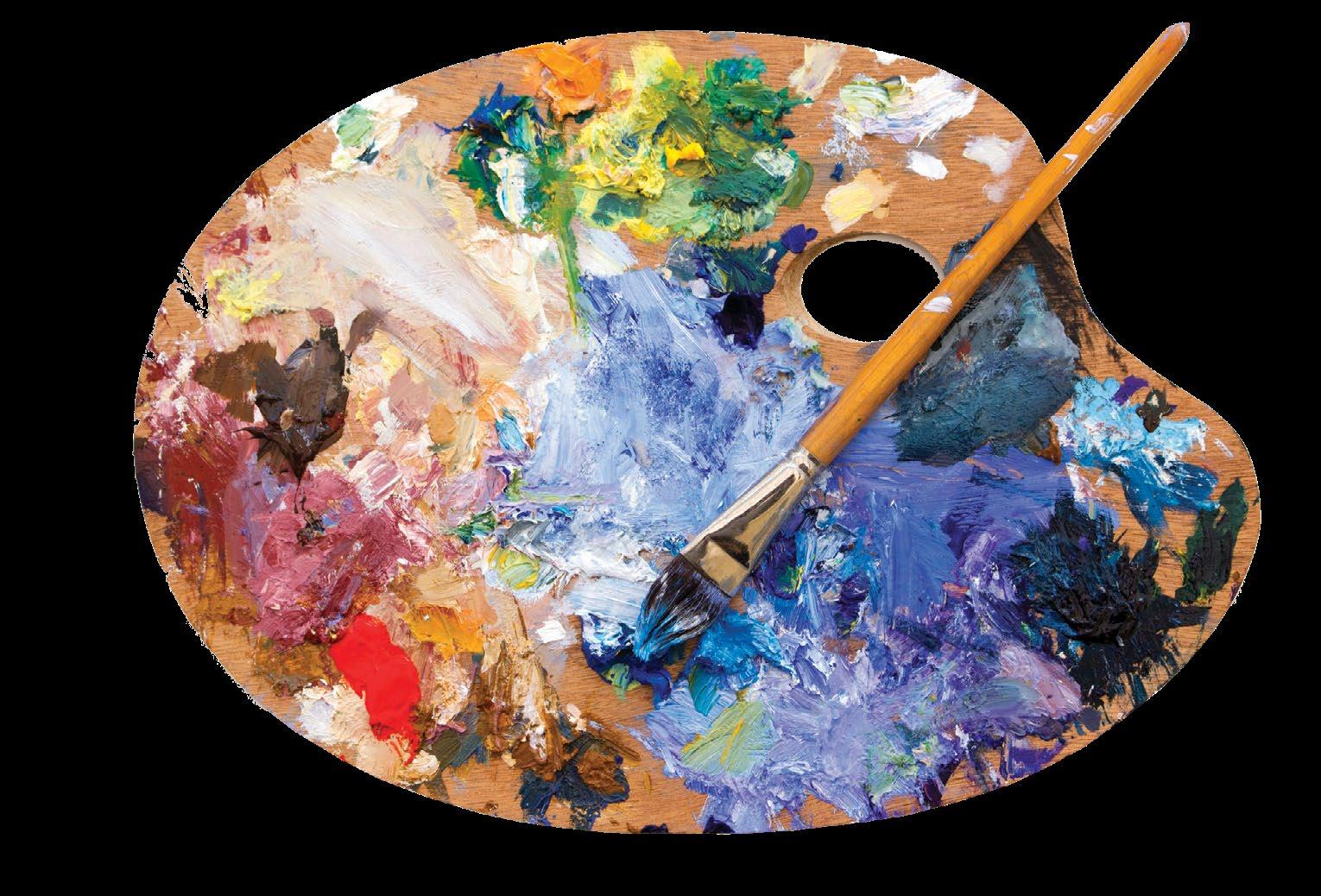

Do you have calendula growing nearby? Its petals can be infused to make a lightly disinfectant astringent lotion for oily skin. Drop a handful of calendula petals into a cup of freshly boiled water. Steep until the water cools to lukewarm. Crush and strain the petals, then splash the liquid onto your clean face. Allow skin to dry. Repeat as needed.
weconnect.nz
Is there something you've always wanted to try, or to learn more about? Have a go yourself, or with a mate! Read Robyn Hoffman's story about her adventures after finding new things to try at Carers NZ's discovery portal - see page 19.
https://weconnect.nz

Protect your precious hearing with these beautifully designed earplugs, which provide quality hearing protection from the dance floor to getting a better night’s sleep. Sets™ Earplugs, $35. https://www.sets.nz
3 to be won!

There’s a lot to love about The Warehouse’s new health and body brand, Good One. The cruelty-free body and hair care range is locally made with natural ingredients, affordable (all products cost between $6-$8) and crafted locally in NZ. An ongoing partnership with Women's Refuge means Good One’s products are provided to women and children in its care. Choose from body wash, lotions and hand washthere’s something for everyone! https://www.thewarehouse.co.nz
1 of 5 Good Ones packs worth $50!

Enter gift draws by completing the form on page 8 or online at familycare.net.nz
Nourish your nails with these eco-friendly, cruelty-free products from Kester Black. https://kesterblack. co.nz
Nail Care Set Start with the Rest & Repair Mask and Self Love Oil, gently massaged over your nails and cuticles (for best results, let them work their magic overnight, then rinse off in the morning). For strong, long nails, apply Miracle Treatment Base Coat twice a week or as a base coat. For the ultimate protection in a flash, finish with Supersonic Top Coat. $140.


Happy Skin Set A beginner-friendly duo for clear, healthy skin, plus tons of compliments. Clean Canvas cleanses away impurities and gently exfoliates, while Skin Drench Moisturiser is packed with peptides, adaptogens, ceramides and snow mushrooms to hydrate and strengthen. $110.
A set of each to be won!
and the largest range of bibs and bandanas in New Zealand.




Carers NZ is a national charity that provides advice, information, support and advocacy for thousands of families across the country. All of our services and information are free. Please help to keep our 0800 helpline, email hotline, web and printed resources, and other services available at no cost.

Postal Address (If Different) _____________________________________________________________________________________________
I’d like to support families and Carers NZ
One Off Donation (Amounts over $5 are tax deductible)
Monthly Donation (Please contact Carers NZ to help you organise this or set up an automatic payment to our bank account below)
All donations will be used to keep Carers NZ's services and information free for our community: infopacks, Family Care magazine, e-newsletters, our 0800 helpline, our email hotline, advocacy for stressed families, wellbeing programmes, events, and keeping everyone informed and connected.
Name on card (please print) ________________________________________________________________
Signature _________________________________________ Or by bank deposit/internet banking
Account name Carers New Zealand Trust Account no 12-3096-0298326-02
Reference Donation
Would you like a copy of your receipt by email? Yes No
Please scan and email your completed form to centre@carers.net.nz or post it to Carers NZ, Freepost # 256234, PO Box 47-385, Ponsonby Auckland 1144 (no stamp required). Alternatively, phone us and we can process your credit card donation in person: 0800 777 797.

Family Care publisher and Carers NZ co-founder Laurie Hilsgen has worked with thousands of caring people over three decades: family carers, those working in caring jobs, and ‘self carers’ managing their own health conditions and disabilities.
What to do for the best? Laurie says the answers often lie within us.
"Caring Light will help you make big picture choices that work for you and your family."
REGISTER YOUR INTEREST IN CARING LIGHT FOR YOURSELF OR OTHERS
Laurie’s fun clarity and reflection cards
Download, print, ponder, plan
The Caring Light video series Find answers, stay well, reduce stress
The Caring Light wellbeing journal Nurture your self!

Laurie is creating other Caring Light resources, drawing on experiences and lessons learned over many years. Look for her Caring Light memoir in 2025!
“When I was 19 I moved from rural Minnesota to be with my much older partner, an ex farmer from Mossburn. His life-altering stroke led to the formation of Carers NZ, Family Care , and so much more. I look forward to sharing Caring Light with you!
We'll keep you informed about Caring Light!
Name Address
Town/City
Postcode
Phone
Tick any that apply
I care for a friend or family member I have health or disability needs myself
I support others in my work or as a volunteer
Email a photo of your completed form or scan and send it to supportteam@carers.net.nz Or, post it to 3 Vinegar Lane, Grey Lynn, Auckland 1021
Aids, equipment, fun stuff!
Protect your skin from scratches, tears, abrasions and bumps! These non-compression high quality Supima cotton sleeves help prevent skin tears and scratches for your arms and legs. The sleeves are very soft, light, comfortable and are seamless for extra comfort. Wear them when you’re gardening, cuddling pets or at other times when you need extra protection! $39 a pair. Learn more and buy at https://www.skinsleeves.co.nz

6 pairs to be won!
Specify arm or leg on your entry form and preferred size (S 20-26cm, M 26-30cm, L 30-40cm)
Dawny Adventure Club started as a mission to reduce single use plastic drink bottles across New Zealand. Check out its great products including these trendy coolers! For every product sold, 10% of the profit goes to the Mental Health Foundation. They also love to support local community events such as surf camps, fundraisers and community raffles. 355ml Cooler, $34.99; 950ml Cooler, $64.99.
https://www.dawnyadventureclub.co.nz
1 of 6 Dawny Adventure Club Coolers - you choose the size!
If you provide essential care and support to a loved one and receive assistance from Work & Income, then the NZ Certificate in Health and Wellbeing Level 2 is free! This course will help you to develop personally and professionally for possible career options, while enhancing the care you’re providing at home. This is an online course, and in the person’s own time, so you can study at home. MySkill will provide a learning facilitator who will help you with the study to achieve the certificate. Assessments can be done in person, online or by phone. For information call MySkill at 0800 697 5455 or email training@myskill.co.nz - mention that you are interested in joining the Carer's Recognition Programme.


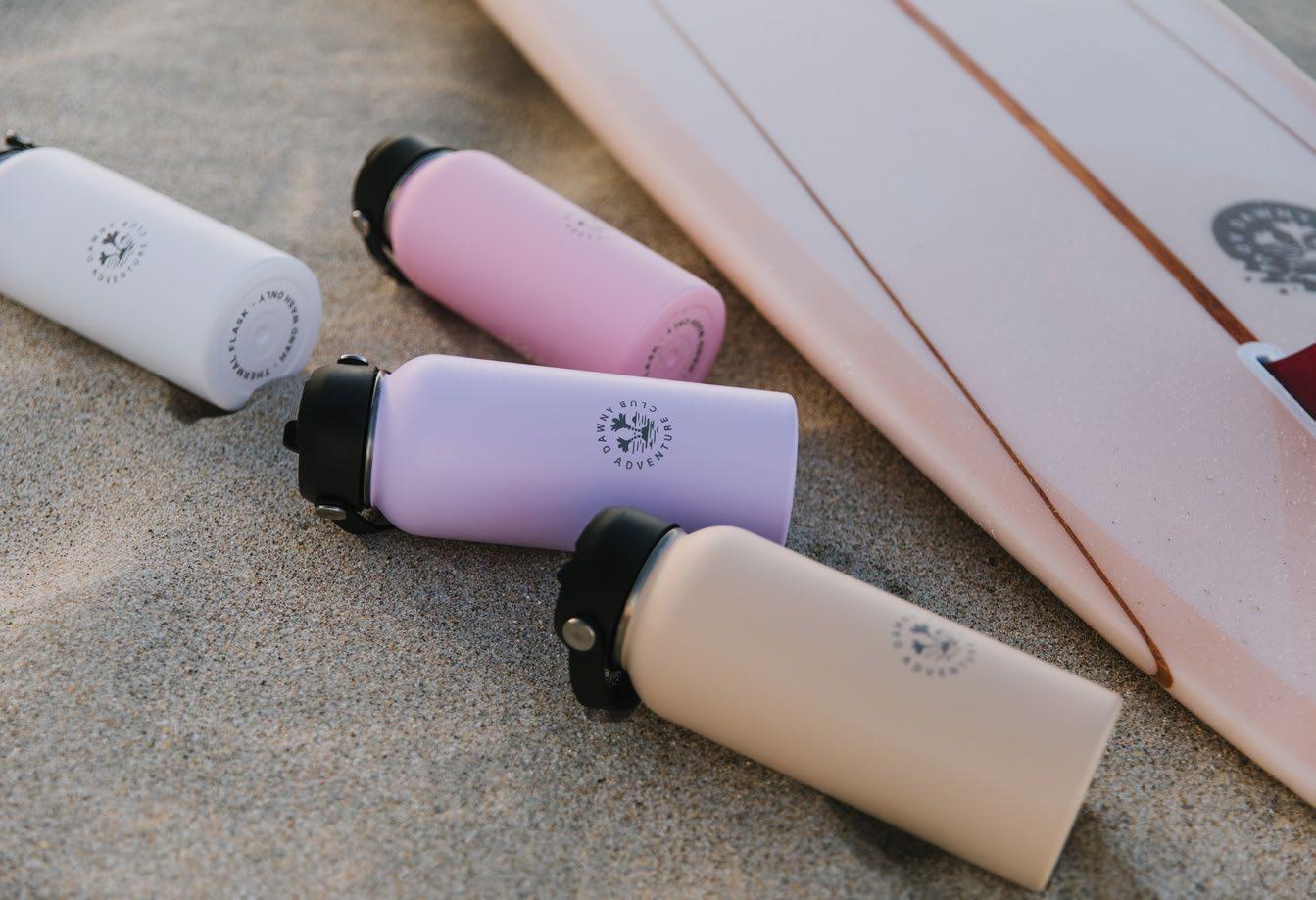
Keep your pet's food and water bowls topped up without bending! The retractable handle allows you to lift the double bowl to counter height for easy refilling. Designed for cats and small dogs, it's lightweight and you can remove the bowl, which is dishwasher safe. Available from Allied Medical for $80 - use our 15% off discount code (for online purchases only). Enter the code AML15OFF in the shopping cart at the website for the bowl or products in Allied Medical's Aids for Daily Living, Walking Aids, and Wheelchair categories. Visit https://www. alliedmedical.co.nz - see Shop Products. 4 to be won worth $80 each!

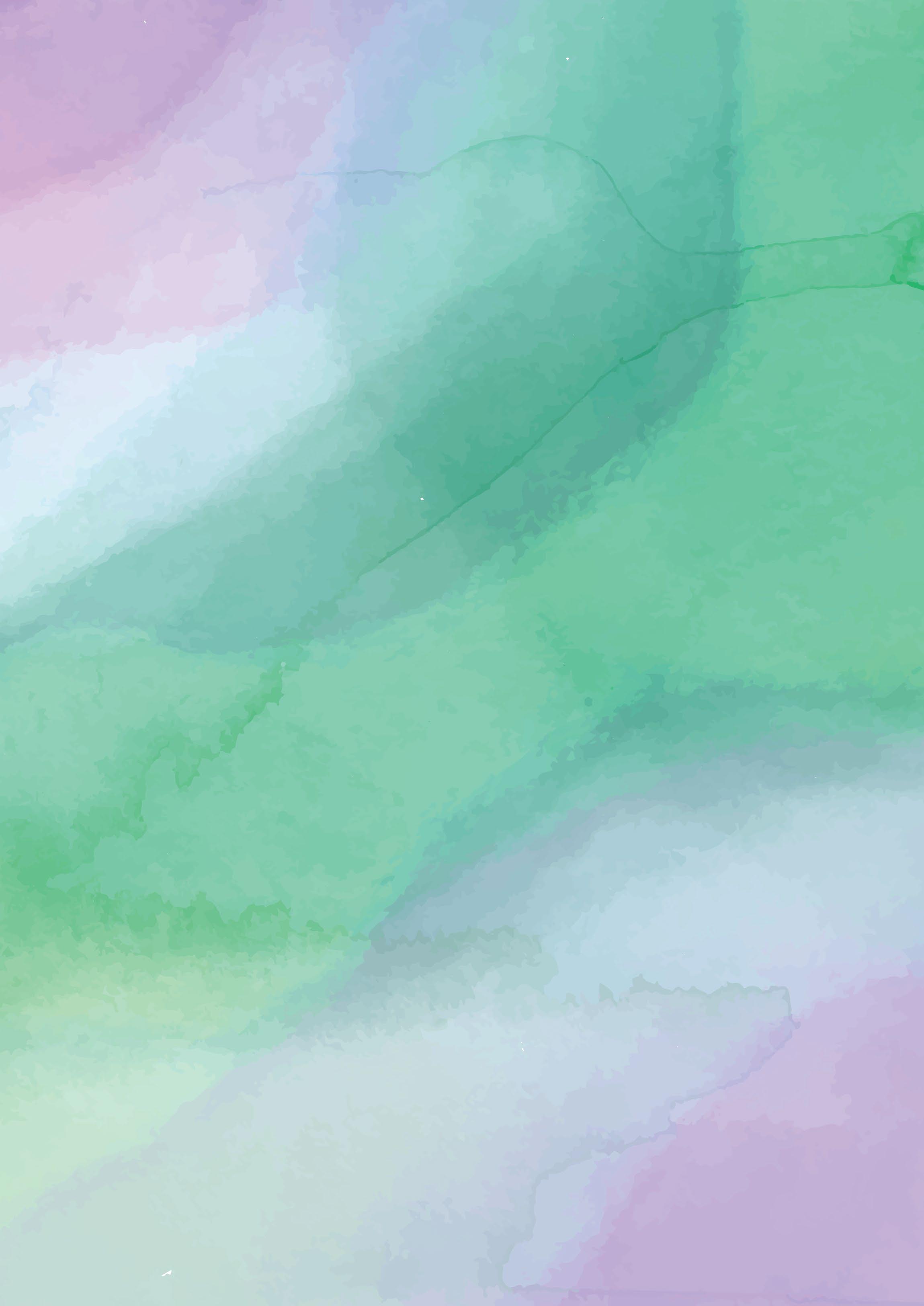

We love this fully illustrated wellbeing journal for children from Hira Nathan and Jessie Eyre, based upon the Māori principles of hauora. Lots of activities and ideas inside this pukapuka will help you learn all about the different sides of yourself and how they make you happy, from your whānau to moving your body, to caring for others and the environment. There's also room for you to write your thoughts, and to draw and doodle, plus cool pictures to colour in and heaps more. Pai tū pai hinga – give it a go! $29.99 from retailers like The Warehouse and bookstores.
3 journals to be won
Finding local support workers isn't always easy, even if you have Individualised or other flexible funding. Manawanui's employ is a free recruitment website to help you find support workers, and for support workers to connect with those seeking assistance. It's free to sign up. employ +!
Check out the new recruitment support service exclusively for Manawanui customers. Do you need some support navigating the recruitment process? Nervous about interviewing and correct employment processes? Choose the level of support you need with employ+ Essentials and employ+ Enhanced!

Learn more at https://www.employ.org.nz
Positive relationships can ward off loneliness, and help us live longer, healthier lives. By Angelique Kasmara
All of the connections we have in our lives make a difference.
Positive social interactions are linked to better cardiovascular health, lower blood pressure, less depression, and a longer life.
These connections help us build and grow skills, improve our mental health, and boost our self-esteem.
Sharing your troubles with trusted others can help to lighten your emotional load and provide a sense of relief. They can play a role in stopping mental health issues from spiraling by providing a sense of belonging and self-worth.
Conversations and activities with friends can be stimulating and fun, helping to ward off cognitive challenges.
Who we connect to includes our nearest and dearest, of course, but others as well. Studies show that even occasional connections are beneficial, whether it’s a friend you catch up with occasionally, acquaintances, people in a group you're part of, or those you see casually, such as your neighbourhood dairy owner or barista.
It's worthwhile to review our most important relationships now and then - how we are connecting at home, at work, and in the rest of our lives. Our wellbeing can depend on these interactions!
Strengthening and nurturing our close relationships is important, but what if we’re in a challenging situation at home or work that we can do little about? These relationships, if distant, can make
us feel even lonelier. If this is true for you, it's even more important to sustain other connections - ones that enrich your life and make you feel good.
Despite the well-known benefits of connecting with people who are important to us, it's all too easy to neglect our relationships.
Many of us are taking care of our families, whether it’s raising small children, looking after a parent, or helping someone who needs extra support. Or maybe we're a bit set in our ways and not as open to new things.
Reaching out for new connections isn't always easy. It can feel as though others already have their group of friends and aren’t looking for new ones.
It's also a reality that many of us experience social anxiety, are naturally introverted or simply out of practice in how to connect with others. The pandemic, too, may have isolated us from friends, family, neighbours, or activities.
Given that this is the case for so many of us, how do we create more natural connections?
Think of why making friends may have been easier when you were younger.
Friendships are often made through the simple factors of proximity, timing and regularity, in environments such as school, a tertiary institution, a friendly neighbourhood, or our workplace.
This low stakes familiarity means that it’s easier to get a sense of who you might have a natural rapport with.
In adulthood, we need to actively create similar conditions. How do we do this?
Practice your social skills
Start each day by thinking of three things you’re grateful for. This will create a positive start to the day. Improve the way you ask questions. There are some good tips at blog.hubspot.com to help you start conversations.
When you’re in a social situation
Turn up with an open heart and mind. When you’re receptive to the moment, connections can flow more positively.
Be a good listener. Often when we’re not in our comfort zone, our minds aren’t focused on what another person is saying, but racing ahead. Stay focused and in the present.
Respect people’s boundaries. Sometimes people simply aren’t in the right headspace for connecting, and that is fine also.
Seeking connections
Join a group! Whether it’s cycling, rock climbing, yoga, a book club, music, meditation or hiking, look for a group that matches your interests.
Learn something new – a language, dancing, cooking, tech, photography, ceramics.
Professional networking events can be great places to meet people with similar interests.
Not sure what you want to do? You'll find all sorts of groups for every interest at www.meetup.com and also at Carers NZ's discovery portal at weconnect.nz Facebook groups are all online, but this can be a good way to interact with people if getting out isn't easy, or you're not in the right mindset for being out and about. There are groups in even the smallest community (and online!) catering to all kinds of interests. Start asking around and have a go at something new.
Volunteering can be a good way to meet people. Select a cause that you’re passionate about: www.volunteeringnz.org.nz
Places of worship often offer group activities or social events beyond regular services.
Parent meetups: school-related activities can provide common ground, whether it’s joining the PTA or offering to coach the basketball team.
Festivals and events offer a way to mix and mingle with people in a relaxed atmosphere. Look for music, art, culture or food festivals in your area.
IT'S IMPORTANT TO ASK FOR HELP AS MUCH AS YOU OFFER IT. YOU MAY FEEL VULNERABLE REACHING OUT, BUT NOTHING STRENGTHENS A FRIENDSHIP MORE THAN ASKING FOR A FAVOUR.
IT'S ALL ABOUT YOU!
It may feel counterintuitive, but the first step towards creating these conditions is to turn your attention to yourself. Putting yourself first is important!
Think of it as a DIY project you’ve neglected for awhile. Before you start, it’s best to have all your tools lined up, sharpened, shined, or repaired before you make a start on building new connections, or perhaps repairing existing ones. What does putting yourself first mean for you?
It can and should mean simply that: doing what is best for you, whether this comes in the form of relaxing in the bath, getting medical check-ups, eating a balanced diet, or catching up with friends.
Prioritising your own physical, emotional, and mental health can and should create a positive ripple effect all around.
For most people, family, health, work and community are intertwined and the success of one depends on the other. Our ideas about staying connected might be helpful!
ME TIME
Many of us struggle to put ourselves first.
This may come from beliefs instilled since childhood of selflessness being a virtue. Or maybe it conjures up unwelcome
memories of that demanding customer, toxic ex or difficult neighbour who managed to make everything about themselves.
For many people, such as those with health conditions or caring for a loved one, finding 'me time' may be difficult.
It is important to allow yourself to feel that prioritising yourself doesn’t have to mean being selfish or neglecting others.
Also, that there are ways to do this without damaging your relationships.
For those with little time, it might come down to snatching five minutes here and there to do something just for you.
Spa treatments, yoga classes or a weekend trip away are lovely ideas, but for many they aren't an option.
If you’re unable to get time off, can't easily go out to connect with others, or if these activities are financially out of reach, try focusing on the basics first.
Keep routines as simple and sustainable as possible.
Aim for regular quality sleep, a balanced diet, frequent hydration, daily exercise and outside time for 20-40 minutes for a daily dose of Vitamin D. Enjoy favourite activities, which match your abilities and interests.
Find your community Research shows that connection is vital for our mental wellbeing. Doing things we enjoy is often more fun with others, and a positive interaction can brighten up our day. Also, just about everyone has something that they’re struggling with, whether it’s the cost of living or health issues. If you’re feeling overburdened, the more information, practical and emotional support you can find, the easier things feel. Seek support groups online and in person to share coping strategies and maintain social connection. It’s important to ask for help as much as you offer it. You may feel vulnerable reaching out, but nothing strengthens a friendship more than asking for a favour.
Make time for what matters to you
When your job, health needs, or support for others swallows up all your time, it may be difficult to sometimes put your own needs first, including maintaining hobbies and social activities. It’s important to connect with aspects of your life that matter to you. If you are feeling a disconnect from yourself, try taking stock of your interests. Notice what you’re missing, whether it is spending time in nature, pursuing a special interest, going to the movies, playing sport, or attending a book club. If you can, mark these activities out on the calendar. Scheduling a Pilates class or going to the movies with a friend makes it less likely your plans will be put aside.
Set healthy boundaries
Establishing healthy rules and limitations can help strengthen any relationship, at any stage. Start by reflecting on your values and beliefs. By gaining a more thorough understanding of yourself, you can begin to identify the kind of financial, physical or psychological boundaries that will work for you. When you’re setting boundaries with another person, choose a time when you’re both relaxed and can talk through your expectations with each other. Be as clear as possible. For example, instead of saying, "I need more personal space" give a clear directive such as "please ask first before going into my bedroom".
Acknowledge the contradictions
A lot of research has been done on how tallying up positives leads to feeling more confident and uplifted. Think of three things that were challenging during the day. Maybe you couldn’t get through to your health provider, you lost your keys, and everyone in your household is down with illness. Then, come up with three things that you’re pleased about – you had a nice chat with a shop assistant, a flower in your garden just bloomed, the clothes on your line stayed dry.
Be a lifelong learner.
Staying open and choosing to learn new things can expand and enrich your life in unexpected ways. Not sure where to start? Make a list of things you’d love to do. Write them down and put the list somewhere visible, like the fridge door. If something is anchored in your subconscious, you’re more likely to spot an opportunity to take action when it comes your way.
I have been reading about your loneliness workshops in the Waikato and thought I may offer a suggestion. A lot of socialisation of males of a certain age in this country revolves around alcohol. My mates wanted to keep up our get-togethers without alcohol always being a central focus or reason to meet.
For the last 15 years we've had what we call Gentlemens’ Breakfasts every fortnight on a Friday. Sometimes not everyone can come, but the date, time and venue (a local café) is always fixed in our phone calendars.
Our breakfasts have survived relationship breakups, job losses, health crises, bereavements and so many good moments and sad ones. During Covid we met online, but now we are meeting in person again and supporting our local café.
The breakfasts are a great source of support for us all. We might not always have the deepest of conversations, but showing up gives everyone support.
When one of our team had a stroke, it was relatively easy to roster support among ourselves and with other mates to visit our friend and really just be there for him having banter and chats.
The Menz Shed is a good idea as well but we are not practical chaps, so the breakfast get-togethers suit us really well. I reckon more people could give it a go. It’s a lot cheaper and better for you than going to the pub.
MICHAEL, POKENO
Carers NZ asked Auckland's Robyn Hoffman to help it develop weconnect.nz - its discovery portal for those wanting to find accessible experiences, outings, learning opportunities, and maybe some friends! This work inspired Robyn, a family carer, to discover just how many options there are to connect in communities across the country.
This project turned into something that changed me, my life, and my outlook.
I started to really think about what is important to me, and how to sustain my own wellbeing.
It was an adventure that took me down many creative avenues. I would explore one range of things to do, and this would lead me toward other activities and ideas I wouldn’t normally look at.
I started searching all over Auckland initiallywhat sort of activities would people be interested in, and what was out there that might be free, low cost, or appeal to people feeling a bit lonely or wanting to find fun things to do. Including me!
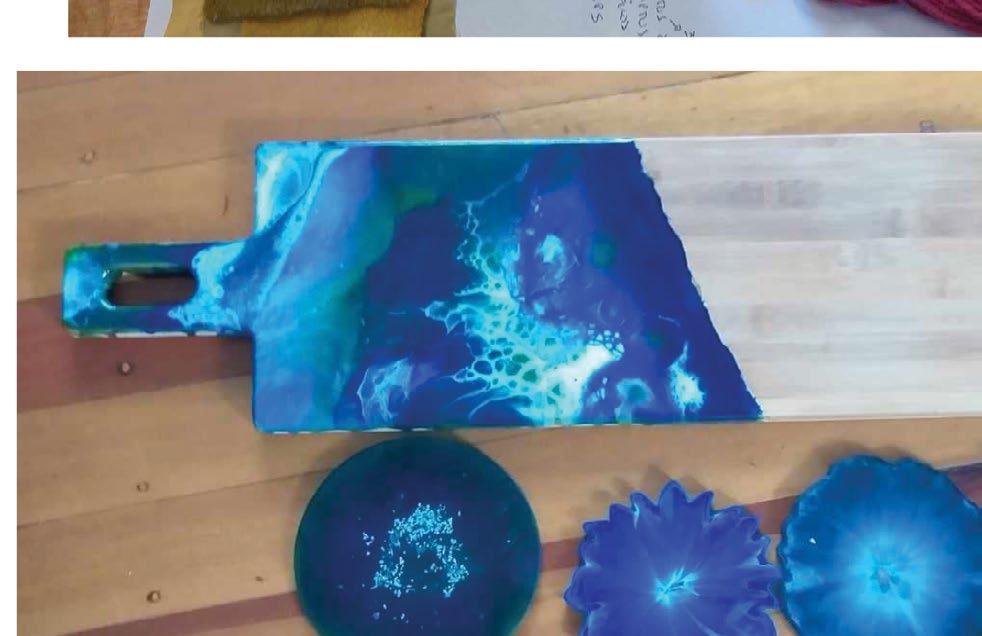
First I tried resin art, which was an amazing experience. I then went to an art class, painting a tui on a kowhai branch. Then I spoke to a friend about doing another art class with me, where we all painted the Milford Sounds.
I researched as many opportunities as I could find, gathering information for weconnect.nz listings, but also with an eye to things I might like to try.
I found a short course where we looked at some really creative recycling and upcycling ideas.
I tried lots of different creative courses - all interesting, where I met people I wouldn't normally have crossed paths with.
I made candles in coconut shells.
I did a free coffee art activity at the library.
I tried lamp making, and print making.
Then I branched into wellbeing things - a massage, float therapy in salt water, yoga, sound baths, meditation.
With a friend I decided to be more active. We went to a golf range, then tried bowling.
Doing all of these things spurred me to find so many different activities for others to showcase at weconnect.nz
I came to understand the importance of doing things I enjoyed, and that lifted me up. I began to realise that if I didn’t look after myself, I couldn’t look after my children.
I spend so much time helping and looking out for others but hadn't been doing enough for myself.
I learned so much in my search for great connection options for the online platform.
The weconnect.nz project kept growing and growing.
I researched options all across the country, and found some quirky things I'd never have known about had I not been doing this project.
I came to see how many opportunities there are in person and online to connect, learn, stay well, and meet others. There truly is something out there for everyone.
A friend wanted to try knife making with me, and ring makingother activities I would never have chosen on my own. We're on

the waiting lists for these courses.
To my surprise, there were so many things I wanted to explore, not what everyone else thought I should do.
I noticed that often people were coming to things on their own. They just wanted to be with others, and we would all chat away together..
The work on weconnect.nz impacted my life in so many ways.
I now see how important it is for us all to connect and try some new things.
Often the events, activities, or courses are for a few hours, or a few days. It's easy to give something a go, and if you don't want to keep going, that's fine.
It's not a big investment of money or time, but an ideal way to connect if you're feeling isolated, or aren't used to being in groups.
I've met some really amazing people who are now in my life long-term through doing these activities.
There are lots of things I still want to try: dance classes, wood crafting, leather craft, glass blowing, maybe a wellbeing retreat.
I'm keen on a 'tree house retreat' - it sounds super cool and you get to spend time in nature.
If you want to try something different, there are now so many interesting listings at https://weconnect.nz
We'd love your feedback, and if you know of a fun activity or learning opportunity we haven't included, or have suggestions about things we should add, please let us know. We are adding new listings all the time!
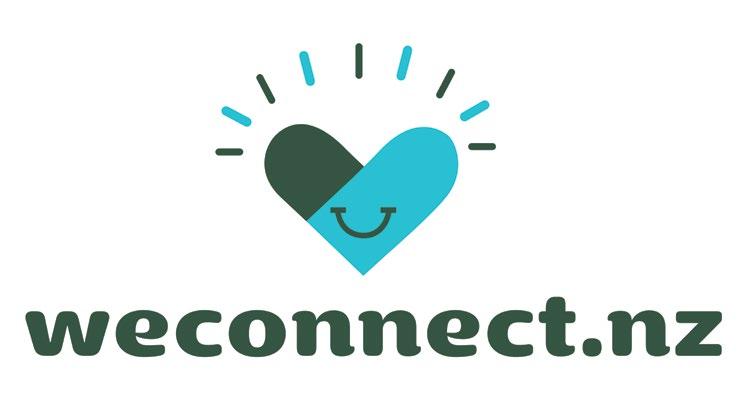
Spend a few hours in the park. Visit a library - many have free talks and events!
Join a local group to make new friends, or explore a new hobby.
Ask a pal to go to the movies, or go on your own!
Have afternoon tea at a cafeeven if you’re on your own.
Join your area Facebook page.



Host a morning or afternoon tea; ask a few friends to bring a friend.
Cut some flowers and visit a neighbour.
Stroll through a farmer’s market.
Write a letter to someone you’ve lost touch with.
Little ways to connect
Visit an exhibition or museum.
Text or call an old friend or a new one you met recently!
Volunteer for a local causeas a ‘oncer’, or ongoing.
Try a community education course! Go to meetup.com to find lots of groups and interests.
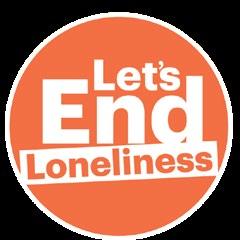
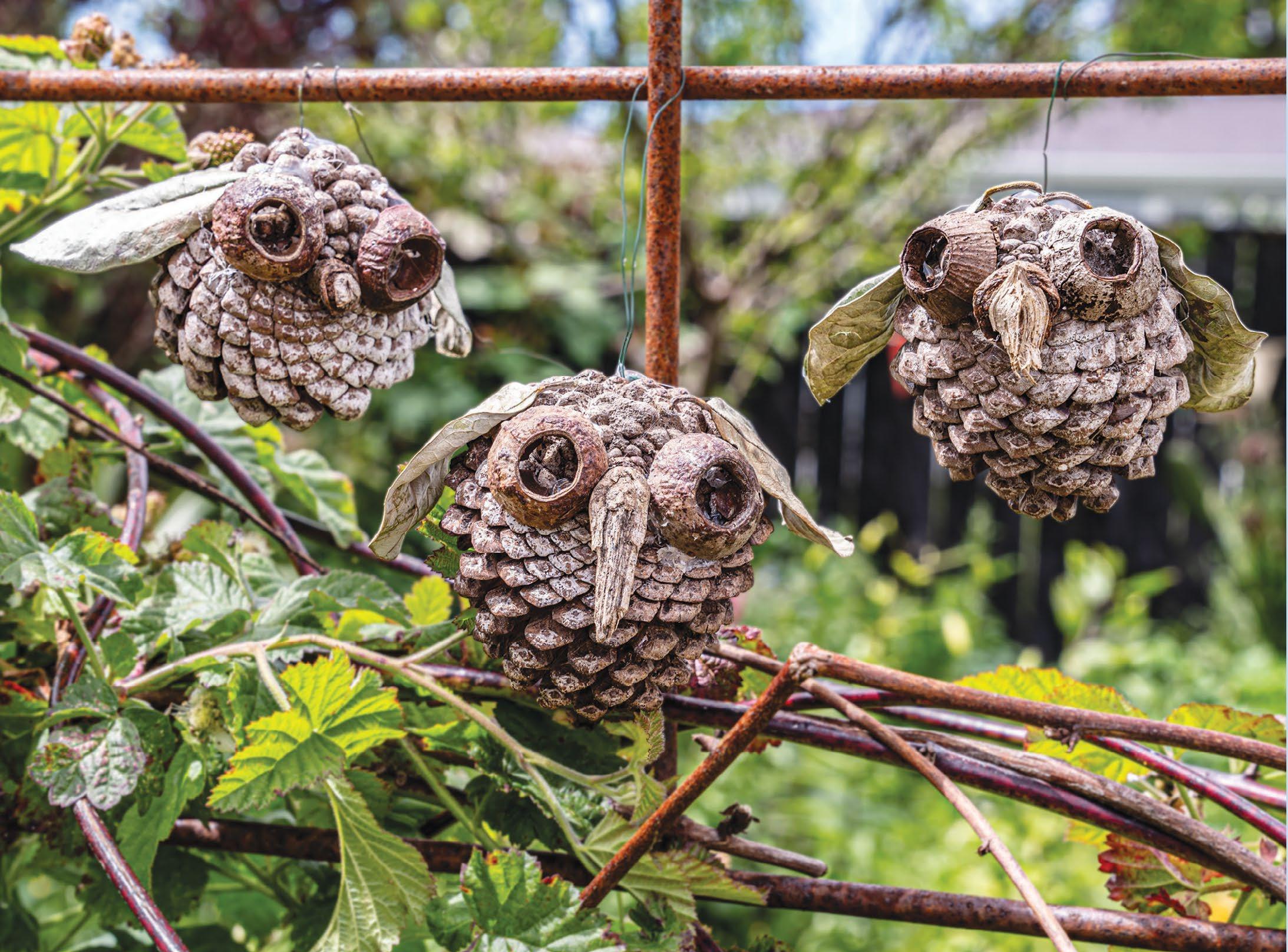
Looking for a fun, creative activity to do at home? Author and gardening journalist
Rachel Clare’s gorgeous Play Wild book has a ton of ideas you can do with your tamariki, from petal pictures to fairy light jars, from hulk hands to bug hotels to nature wristbands.
Rachel says she wrote Play Wild to help readers experience the benefits of connecting with nature.
"The benefits are immense and nurture our desire to protect nature. As a parent, I’m fully aware of the constant battle to get kids off devices and outside. Even just short daily bursts in nature are beneficial to our wellbeing. If we develop this habit when we are young, it will set us up for life."
Her beautiful projects can be created with simple, easily sourced materials. Here’s one to try out!
Aotearoa’s native owl is a watchful guardian of the night. Make your own ruru out of a pinecone and seed pods. If you can’t find eucalyptus seed pods for the eyes, forage for another type of round seed pod, or use small stones.
You will need A pinecone
Eucalyptus seed pods, acorn caps or small stones
Dried leaves
Glue gun
Wire or string
1. Look for a pinecone that still has its stem attached as this will form your ruru’s ‘beak’. If it doesn’t have a ‘beak’, use a glue gun to attach a beak-sized stick.
2. Carefully use a craft knife to cut the eucalyptus seed pods in half so they sit flat on the owl’s head (get an adult to supervise or ask an adult to do this). Or, use acorn caps, which won’t need cutting, or small stones. Glue the eyes on either side of the beak. Glue on dried leaves for wings.
3. Twist a piece of wire or string to the back of your owl (use a dab of hot glue if necessary) and hang it up.
We have 2 copies of Rachel Clare's beautiful book Play Wild to give away. Entry form p8.


A small bundle of your favourite flowers, bound by a beautiful ribbon, is a joyful way to give yourself and your surroundings a lift. And what lovelier term than tussie mussie to describe this handful of delight!
By Rosemarie Smith
Tussie mussies speak the floral language of love, blessing both the giver and the receiver.
For the giver, there’s the deep satisfaction of gardencombing for the smallest of flowers, bringing them together to create something of beauty.
Barring allergies, they’re a highly acceptable gift for so many occasions: birthdays, anniversaries, condolence and celebration, or just for a friendly visit.
Tussies are easy for elderly people to hold in the hand to examine carefully, and tiny old-fashioned flowers often awaken childhood memories, speaking directly to hearts when other forms of communication are limited.
My mother became skilled at making them after finding she had no talent for conventional flower arranging.
My own efforts are accompanied by her words of wisdom: the best tussies come from the untidiest gardens, she would say.
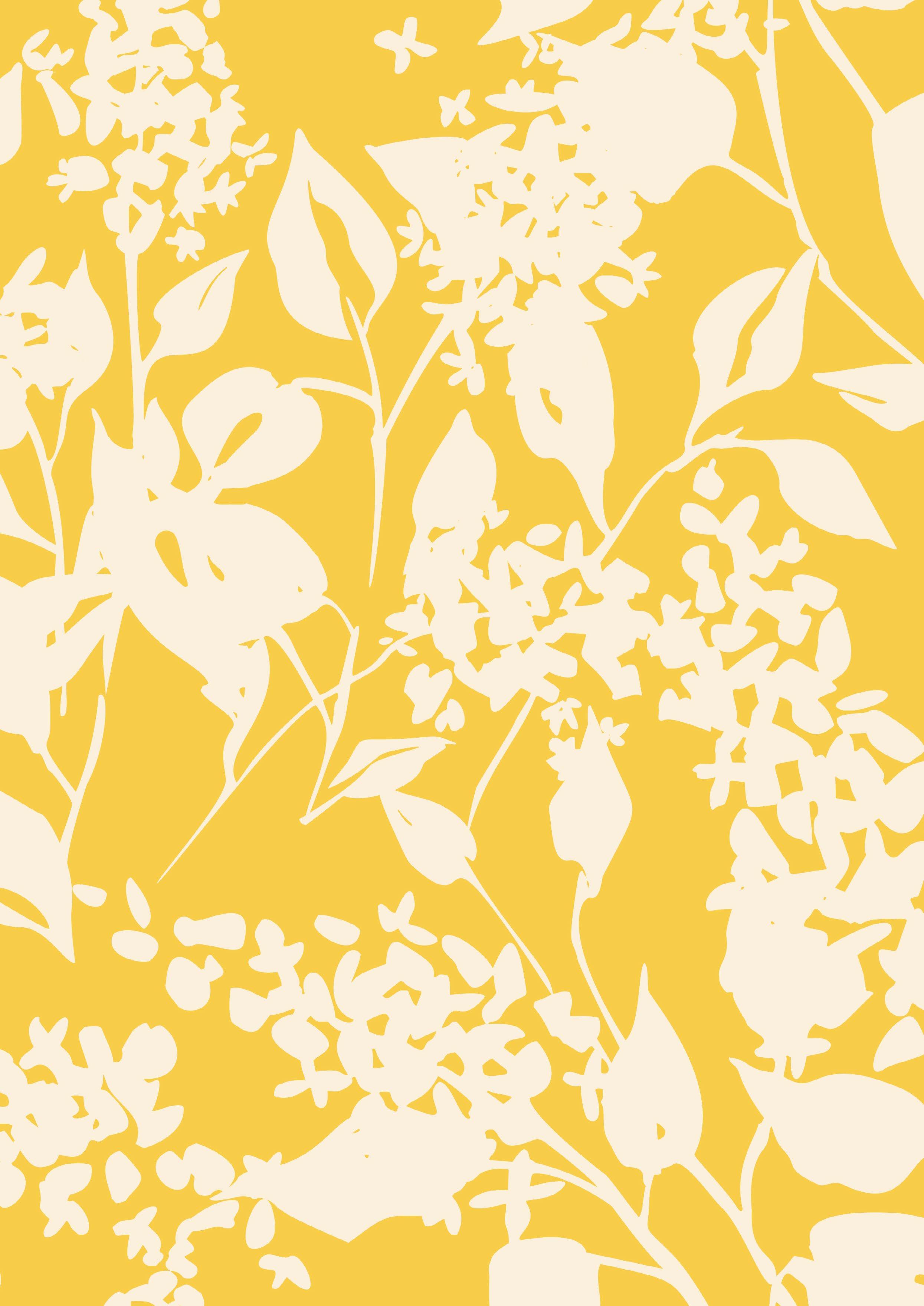
No two are alike: people can make tussies from the same garden and have different outcomes. She designed her own garden to provide a continuous selection of suitable material, and it was rare she couldn’t scrape up at least a ‘skite’ posy, even in a southern winter.
At Christmas it was a production line, and any one posy could contain 30-60 floral, herb and foliage varieties.
There were colour coordinated posies for golden and ruby weddings, Saint Patrick’s Day (green roses and all!), tussies for bridal parties, and scented posies for the blind.
Travellers took them on the road and they were tucked into caskets for final journeys.
Tussies are an ideal present for the person who has everything, or no room for more.
They last well, take up little space (great for hospital patients) and don’t require fancy vases – I gather up small vases and jars from op shops that don’t have to be returned.
These tightly constructed posies are made up of small flowers and foliage gathered together in a seemingly artless clutch.
The secret is using only small flowers and buds; stripping excess foliage from the stems; choosing a focal point to build around; and keeping the posy tight, with the top gently rounded.
The basics are small cottage garden flowers: heartsease pansies, cornflowers, nigella, alyssum, violets and forget-menots, lobelia, honesty, candytuft, gypsophila, felicia, every kind of small daisy, plus miniature flowers, especially roses,

polyanthus and chrysanthemums, while herbs like rosemary, lavender and lemon verbena delight the nose.
Imagination is the only limit, not necessarily a garden full of flowers, as shrubs often have suitable small flowers or foliage tips, while weeds like buttercup and seed heads (parsley is excellent) have much to offer.
I’m a firm believer that anything growing on a street border is fair game and thank my neighbours’ wild street frontages for honeysuckle and tiny wild sweetpeas.
I chuckle in turn when I hear someone unseen helping themselves to jasmine out of my hedge.
A flat-headed multi-headed flower like yarrow or choisya (mock orange) can be used as a scaffold, especially useful for making downcast flowers like pansies, snowdrops and fuchsia face upward.
Possible finishing touches include loops or spikes of variegated flax or grass, and a frame of foliage like small laurel or camellia leaves or conifer fronds.
Tight binding with a rubber band makes a posy last longer than loose flowers, while wrapping the stalks in damp tissue enclosed in plastic wrap maintains freshness for travel.
‘Tussie mussie’ comes from Queen Victoria’s reign, when the little posies were popular fashion accessories and performed a double role, used to send messages to recipients via floral symbolism, known as floriography.
This language of flowers can be traced back to the 1600s.
In Persia, Turkey and the rest of the Middle East, a simple flower language was developed to communicate more easily.
The Victorians adopted this concept with enthusiasm, turning tussie mussies into the equivalent of how emojis are used today in messages or texts.
Where there was a strict social etiquette in place, with certain things unable to be spoken out loud, floriography came in handy.
This is where the use of many forms of vegetation comes in – flowers, plants and various leaves were used to say what people wished they could express in conversation or writing.
Instead, in a tussie mussie, simple messages such as ‘your love is reciprocated’ could be conveyed through sending someone a bunch of ambrosia flowers.
In their simplest form, ‘talking bouquets’ comprised a single flower (the central meaning) surrounded by tightly arranged, fragrant herbs.
Typically wrapped in a doily and bound by ribbon, women could pin them to their chests or carry them.
TUSSIES ARE THE IDEAL PRESENT FOR THE PERSON WHO HAS EVERYTHING, OR NO ROOM FOR MORE. THEY LAST WELL, TAKE UP LITTLE SPACE, AND DON'T REQUIRE FANCY VASES.

We’re familiar with a bouquet of roses on the doorstep or a red heart inserted into a chat interpreted as gestures of love.
The Victorians took it a step further, and with it an increased interest in botany as they brought the outdoors inside.
Unfortunate suitors were given a bouquet of yellow roses in response to say, ‘hey, we’re just friends’.
Pink, red or white carnations were used to express admiration, love, and friendship, but a vase of striped carnations in the window could mean rejection or contempt.
This increasing popularity of symbolism soon expanded into literature and fine art, something that continues to this day.
With there being so many different flowers and possibly conflicting meanings, the real skill in floral messaging came from the construction of a bouquet: what flowers were put together and how they were presented.
Hundreds of flowers become emblematic of affection, regret, longing, planning, and sometimes even scorn.
Every aspect of a talking bouquet was symbolically infused.
The central flower, not surprisingly, formed the key message.
Herbs, foliage and flowers were only added around it if their meanings supplemented the central message.
Not all messages were flirtatious, so one had to be careful which flowers were chosen.
The way a woman held her tussie mussie denoted the degree to which she accepted its message.
If you are feeling lonely, we know that’s really tough, but we’re really glad that you’re looking for information.
Feeling lonely is a normal human experience but is also a sign that you want to connect with others. There are lots of things that you can do yourself that can help you to feel less lonely. Sometimes the best way to move out of loneliness is to talk to someone else or get a little help.
If your feelings or situation are overwhelming, there are many organisations and people ready to listen.
There are also organisations that offer support and opportunities to connect with other people.
Visit the website to find out how you can become involved in the movement to end loneliness:
• Learn about loneliness and how to tackle it
• Sign up for our newsletter
• Join the coalition
• Share your stories
• Donate to support our work
Together we can end loneliness one person, one community, one workplace at a time.


Also known as nosegays or posies, tussie mussies are denoted by their small size, tied in a tight bundle - differing in this way from more expansive bouquets or corsages.
What you’ll need
Flowers, not too big
Decorative leafy sprigs
Ribbon Scissors
Cut your flowers and sprigs into a bundle that fits nicely into your hands. Tie with ribbon. Have fun with the different meanings of flowers, but don’t expect any recipients to understand the deeper meanings, unless they happen to be an expert in the ancient art of 'talking bouquets' or floriography!
Personalise your bouquets to send secret or heartfelt messages.
Pink roses – secret love, coyness
Red roses – love
Lavender – enchantment
White roses – innocence, purity
Yellow roses – friendship, joy, jealousy
Tulips – love
Chrysanthemums – fidelity, optimism, long life
Lotus flower – estranged love and forgetfulness of the past
Bulrush – peace and prosperity
Thistle – bravery, devotion, durability, strength, determination
Red nasturtiums – courage, strength, passion
Orange nasturtiums – creativity
Hollyhocks – fruitfulness
Bluebells – humility, constancy, gratitude
Daffodils – regard
“On my recent visit to Southland, family carer Rosemarie Smith presented me with a gorgeous tussie mussie featuring dozens of tiny colourful flowers. Her thoughtful gift (we have known each other for many years) reminded me about the gentle floral art of tussie mussies. It’s been years since I made or received one. I’m sure others will enjoy reviving the old craft of tussie mussie making using wildflowers, small cuttings from the garden, herbs, and little vines. These sweet posies can be tightly wrapped in pretty fabric, a hanky, even brown paper, then tied with string, thread, or ribbon. Rosemarie knows many tussie mussie tricks learned from her mother, which she's passed on to readers. Thanks for sharing, Rosemarie!
FAMILY CARE EDITOR
LAURIE HILSGEN

Periwinkle – blossoming friendship
Forget-me-nots – sent to loved ones moving away
Rosemary – remembrance
Peonies – bashfulness

Since his participation and engagement in his kapa haka roopu, James' confidence has grown, along with his understanding of himself, and improvements in his overall wellbeing.
By Georgie Meadows
James Normile, a youthful, 50-year-old Ngāti Porou man from the East Coast of Aotearoa, lives with an intellectual disability and receives full-time support.
James lives in an IDEA Services residential home, and is a founding member of the Marlborough kapa haka roopu, Nga Whaikaha Hinengaro O Wairau.
When I first began my mahi as one of James’s support workers almost 10 years ago, it was clear his strong bond with his whānau was integral to his sense of self and he spoke regularly of his siblings, nieces, and nephews.
"I am my Mum's son," James often remarked.
While his whānau was significant to him, James had not had contact with his siblings in at least a decade, and they were not known by his support staff.
James was also proud to be Māori and yet, outside of time spent with his Mum, he lacked opportunities to experience or express his cultural identity.
Much of James’s sense of belonging to both his whānau and whakapapa was tethered to memories from his younger years, leaving him spiritually and culturally unrecognised in his present home and daily life.
Since his participation and engagement in his kapa haka roopu, changes have occurred for James. His confidence, his understanding of himself, and overall improvement to his wellbeing seem directly linked to the regular experience of his cultural heritage.
When the kapa haka roopu was first founded, the tikanga, reo and kapa haka were not new to James.
I heard him use Māori kupu (words) for

the first time, and realised James knew many of the waiata and waiata ringa (action songs).
I’ve since learned from his Mum that James loved to join his siblings and cousins in waiata.
When James participates in the roopu he displays a look of confidence, holding his head high, as though grounded in his rightful place.
He now often takes on leadership roles, coming to the front of the group to support other members who follow him during the waiata ringa.
James’s Mum, Whaea Marie Normile, is both a kaumātua in our community and a highly esteemed representative kapa haka herself. James now says to me “I am my Mum’s son: Māori, Ngāti Porou, like my Mum”.
Our roopu now wears kākahu donated from Te Rerenga O te Rā, James’s Mum’s kapa haka roopu, given with the expressed wish to awhi our group so they could literally be cloaked in the mauri of our region's past kapa haka performers.

We also received dresses for our wāhine (that I had performed in as a teenager) and so the threads of our journey, our whakapapa, are woven. Tui, Tuia.
IDEA Services’ kapa haka festivals were initiated to provide a stage for the people we support, to showcase their strengths and talents. The process involved in preparing for the stage becomes their waka along their journey to bring cultural values to their day to day lives.
A foundational value is whakapapa: our connection to who we are, where we come from and our tūpuna that came before, so we can stand in their strength as their legacy.
It was important to James to engage with his whakapapa and with his whānau. On making contact with his siblings, we realised how important James was to them.
The missing link in the contact was simply James being supported to facilitate those connections.
With support staff on hand, and through video calls to Australia, James connected with his sister and her kids, who were now teenagers and young adults.
It was clear they had grown up hearing often of their Uncle James because they greeted him for the first time in many years, saying “Kia ora Uncle, I love you Uncle”. On hearing of James’s goal to be Kaea (leader) of a haka, he and his nephew performed a haka together.
Now, when James speaks of his whānau, his stories are not just of the past.
He proudly shares that he is an uncle and now a great uncle. He regularly sends videos of his kapa haka performances and receives proud messages of love and encouragement.
After a kapa haka performance he will often say “tell my sister, tell my brother”.
The name given to James’s roopu, Ngā Whaikaha Hinengaro O Wairau, reflects the group's aspirations: to be thoughtful about their strengths and abilities, to acknowledge and participate in the community in which those strengths are nurtured and supported, and to provide learning and growth in the journey of exploring cultural identity.
One of the proudest achievements of Ngā Whaikaha Hinengaro O Wairau was being the first kapa haka roopu made up entirely of adults with intellectual disabilities, to perform at Taiopenga in the 20 years it has been the Marlborough community's kapa haka festival.
This was incredibly significant for James, who was able to share his achievements, showcase his strengths, and express himself as a proud Ngāti Porou, Māori man and a proud kapa haka performer “like my Mum”.
And for James’s Mum, it was the first time she had seen her son stand on the same stage she herself had stood on for many years, performing in his own roopu alongside whanaunga and James’s aunties, the Kaea of Taiopenga.
His Mum shared with me that James performs on stage just as she herself does: "with his chest lifted and his head held high, singing to the Gods".
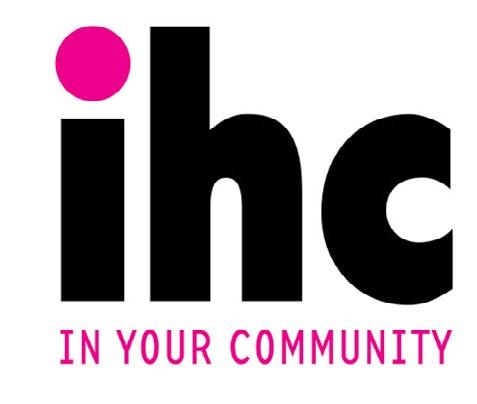
Judy Bailey’s new book, Evolving: Finding Health & Happiness As We Age, has some wonderful insights into ageing well. In her book she also talks about caring for her late mother and motherin-law, both of whom had dementia in their later years. She shares her insights with Family Care readers.
I am so full of admiration for all those who are so selflessly caring for someone else. From my brief experience of caring for my mother, I know it’s tough. Physically and mentally draining, not to mention, when dementia comes knocking, an absolute heartbreak to have to parent your parent.
But it can also be so rewarding, and I truly believe, looking back, you will never regret the time you spend caring for someone you love.
Both my mother and mother-in-law ended up battling dementia. They were both much loved, intelligent, capable women. Vivacious and witty. While every case is different, there are some things they had in common.
In the early stages they just became forgetful. They would repeat the same questions over and over, and became a hazard in the kitchen, forgetting to turn off elements, burning food, putting their things in strange places (keys in the fridge, glasses in the dog’s bed).
They became overly anxious about little things and later would have sudden changes in mood, going from happy to tearful to angry in the blink of an eye.
In the final stages, they had occasional lucid moments but were both confused, and seldom recognised us.
During this time, I learnt that people with dementia are very sensitive to tone, so it’s important to speak gently and to try to be patient.
Don’t sweat the small stuff; if they insist it's Thursday and it is in fact Wednesday, it doesn’t matter.
We found familiar music to be particularly soothing, especially for Mum, who had trained as a ballet dancer and loved classical music.
A fidget bag was another wonderfully calming tool. We’d fill a soft handbag with little mementoes of her life, a piece of lace from her wedding dress, some velvet, a special little box, some pebbles and shells from the beach where she loved to walk and, of course, photos of her family.
We’d often sit for hours gazing at photo albums, not that she often remembered who was who! When I was researching my book, I came across the work of Teepa Snow. She’s an American occupational therapist and dementia care consultant with 40 years of clinical practice under her belt.
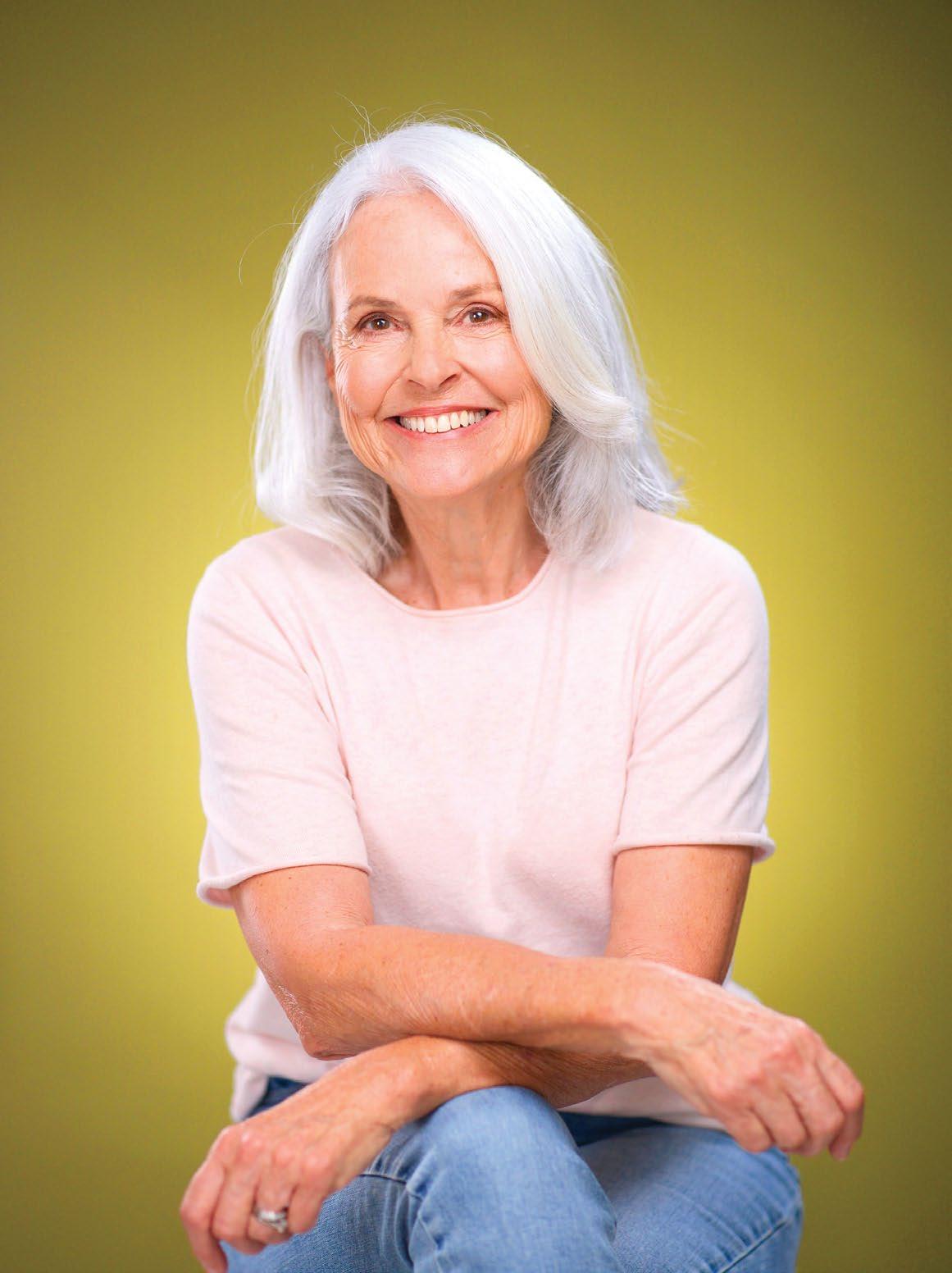
Teepa's key message is to become a care ‘partner’ not a care ‘giver’, a useful reminder, I think, for any carer. She advocates working together with your loved one, not trying to push care onto them. Check out her videos on YouTube and visit her website for some wonderfully practical tips: https://Teepasnow.com
Other things I learned? As dementia progresses, your loved one may begin to wander and have trouble sleeping at night. Which means your sleep is often disrupted and you may end up feeling exhausted and at the end of your tether.
Try not to do the ‘Lone Ranger’ thing, as Teepa calls it. Don’t be afraid to put your hand up and ask for help. Your GP will be able to steer you in the right direction.
Many rest homes and hospitals provide respite care, so if you are able to use this option, do give yourself a break; you’ll be a better carer for it. If respite care is not an option, you still need to take time for yourself, which can be easier said than done.
I found getting another member of the family to keep an eye on Mum while I went for a walk, or did a quiet meditation, or simply had a bath or went for coffee with a friend, helped enormously. I hasten to say I wasn’t in charge of Mum 24/7, so it was much, much easier for me. Yet I still struggled from time to time.
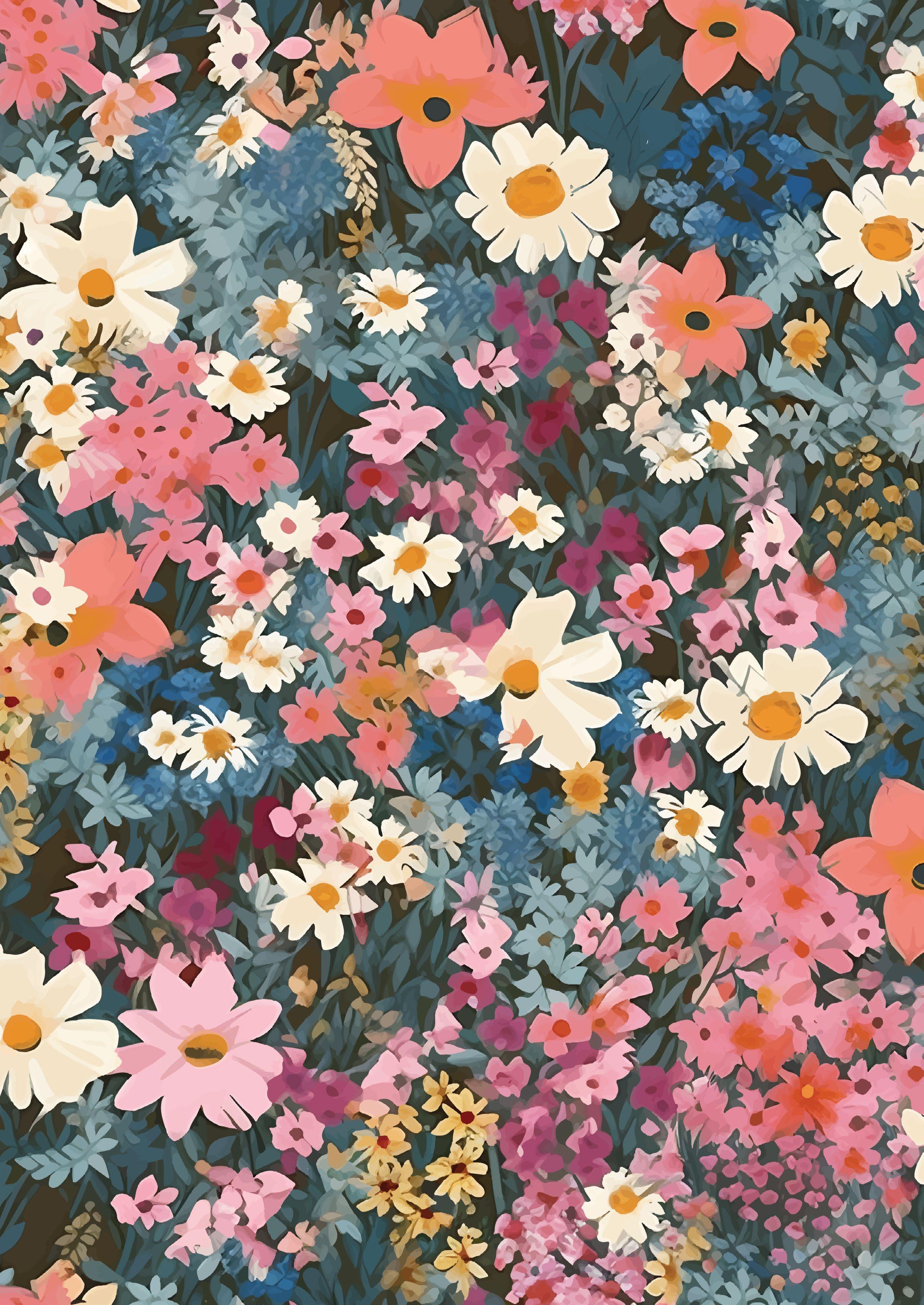

I found that trying to access outside support was a bit of a minefield. As others will be well aware, there is support available from all manner of government agencies, but it is difficult to navigate between them and figure out who is responsible for what. A streamlined one stop shop would make it so much easier for already stressed carers. We ended up accessing aids like walking frames and wheelchairs from a local chemist.
Organisations that have helped support others I know are Dementia NZ, Alzheimers NZ and Age Concern NZ, and their local agencies for disability support.
Another resource that I’ve just discovered while chatting to a friend who’s just had a knee replacement is STARTSupported Transfer and Accelerated Rehabilitation Team.
It’s a free service provided through Te Whatu Ora, staffed by nurses, occupational therapists, and physios.
The service is for 65s and over who need short-term rehab in their own home. It’s particularly good for people recovering from strokes and hip and knee replacements.
START will also help those who are under 65 who are recovering from a stroke.
At the end of the day, what helped us the most was trying to always focus on what was possible, not on what was lost.
To celebrate the small triumphs and find the joy in simple things.
We have two copies of Evolving to give away. Download the book online, or you'll find it at bookstores and libraries. $39.99, Harper Collins.
Entry form, page 8.



Do you support a friend or family member who is ill, or has a health condition or disability?
Carers NZ offers useful information, and advice about available help around the country!
We are a national not for profit that works with many other community, government, and charitable organisations to support those in caring situations.
Carers NZ assists carers directly via its 0800 and email services, and acts as Secretariat for the New Zealand Carers Alliance of 59 national not for profits who are working in unity to give caring issues public visibility.
Phone our National Resource Centre to request a free carer infopack or for a referral to a carer support network in your area. It's free to join our network (just call our 0800 helpline) or email centre@carers.net.nz
You'll receive regular e-newsletters, email and posted updates, and we'll keep you informed about important news all carers should know about. We'll also let you know about learning and social events you might like to attend in your area, or online.
You might also like to check out our web space! Visit regularly to see helpful information to support you in your role!
Visit www.carers.net.nz
Email centre@carers.net.nz
Facebook www.facebook.com/carersnz
Twitter #carersnz Pinterest CarersAir
Phone Carers NZ's National Resource Centre Monday to Friday during business hours: 0800 777 797

Several years ago a small group of New Zealanders embarked on a 220 kilometre camino pilgrimage from Porto in Portugal to the famous cathedral of Santiago de Compostela in Santiago, Spain - an ‘extreme respite’ awareness campaign for Kiwis caring for loved ones.
It was a journey that sparked in Carers NZ cofounder Laurie Hilsgen a lifelong change in her own attitude towards walking for wellbeing.
I walk. I prefer walking. JANE AUSTEN
Readers may enjoy Laurie's blog, Camino Slow, where she shares her experiences and those of others who walk for fun and wellbeing.
"Too often we are encouraged to walk for fitness with step or weight loss goals. My motivations were shaped on the Camino Portuguès - a simple approach of walking for pleasure and welbeing, without guilt about missing days, weeks, or even months."
"The goals are a lifelong journey of peace, reflection, being in nature or in the company of others, and time out - time just for you."
This year Laurie returns to Minnesota in the United States to complete the Lake Wobegon Trail, a walking and cycling trail named after author Garrison Keillor’s fictional town, which is set in the area where she grew up.
She’ll be talking to small town businesses and sharing recipes from her cousin, famous Minnesota baker and local historian Lois Thielen.
Join Laurie on her Minnesota adventures, flavoured with Kiwi lore, at her other blog, https://www.lenamina.com
"I realised the benefits of a camino – a long walk - were mental as much as physical. And that we can all enjoy these benefits any time, wherever we are, one step at a time."
She’d pissed me off, my sister.
We’d walked 15 kilometres that day in rain and grey weather to the ancient farmhouse midway along the Camino Portuguès.

Dinner with our fellow peregrinès (pilgrims) had finished with bowls of caramel-topped crème brulee.
Now we were in our soft beds topped with eiderdowns, for spring nights in Spain can be cool.
I was facing the wall, reading, when my gentle tale dispersed with a jab to my back.
“Hey!”
I expected an explanation. Maybe a cruel big sister laugh. But there was no response.
I turned over.
Marilyn was a foetal shape beneath her feathers, facing the other wall. Snoring.

I hadn’t imagined the jab.
But my sister doesn’t jab.
Especially when she’s exhausted and filled with crème brulee unless, perhaps, she’s fighting for what’s left in the bowl.
My eyes flicked over the room, in the old building on its ancient land which had weathered its share of battles along the pilgrims' route to Spain’s holy cathedral in Santiago, built where, legend has it, the bones of Saint James are buried.
Since medieval times, millions have walked The Way, the ‘field of stars', across a vast network of roads and paths from all corners of Europe.
The most popular route traverses southern France from StJean-Pied-de-Port down into Spain and onwards to Santiago.
We were walking a shorter route from Porto in Portugal to the Cathedral - a few weeks of fast-paced pilgrimage to
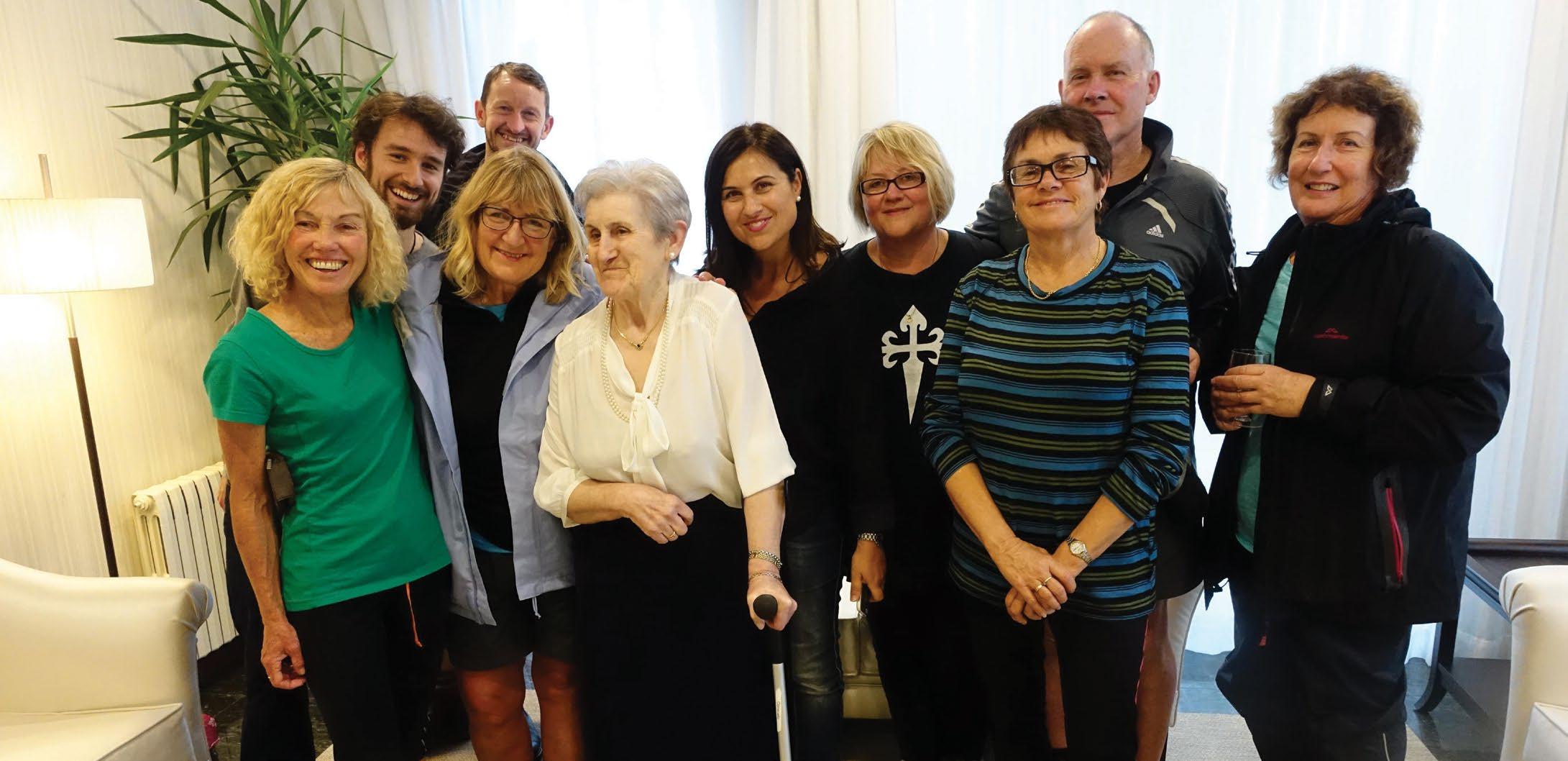


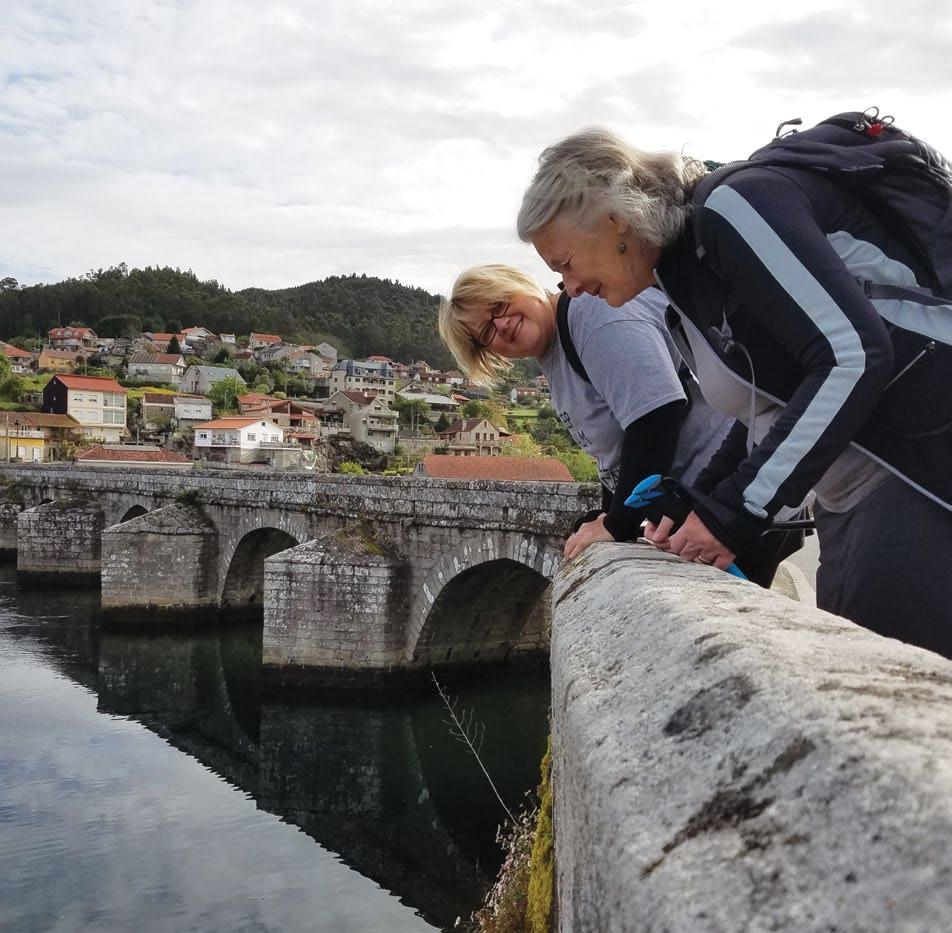

accommodate our work schedules, and providing extreme respite for a small group of family carers from New Zealand who needed to get home to those who relied on them.
I had concluded that most of the family carers were supernatural billy goats – the front mob.
Marilyn and I were slower walkers who took longer to reach our modest hotels each day – the back mob.
That’s the beauty of walking a camino, leading to sayings like walk your own camino
We were all going at our own pace, crisscrossing a few times a day depending on how long we rested at small cafès along the route, or whether we popped into churches and other landmarks in the rural villages we passed through.
I loved the churches with their battery-powered, coin-operated votives. For a Euro or two I could light candles to bless everyone I cared about with the press of a single button.
Now we were unwinding after a wet day, having enjoyed one of the better meals we’d eaten along our journey, and that creamy brulee.
But what of the jab? It had to have been a ghost, as there was no one else in our room.
Had I taken its bed?
Were its mortal remains buried beneath the floorboards (for such things are found in old places)?
Maybe I’d been given a rough but kindly benediction, encouragement to stop reading and rest for tomorrow, as we had many kilometres to travel.
Normally a ghostly shove would give one pause.
But apart from Marilyn’s contented sighs and snores, the room was peaceful.
It mustn’t, then, be an evil spirit, I thought.
My eyelids fluttered.
The shove had been real.
But so were the effects of rioja, blisters, and the wearying effects of the day’s walk.
Ghost schmost.
The skittering shadows made by the bedside light were hypnotic.
I gave myself up to sleep, to doubt, to bone tiredness, and a final grumpy thought that surely walking the holy road should protect us from such things. And maybe it did, for we woke to sunshine, and pretty wallpaper, and the usual feeling that we must hurry.
We needed to fill our water bottles and stuff last night’s damp washing and some nuts and hardboiled eggs into our backpacks.
For The Way was waiting.
We hope you enjoy our short films about the Carers NZ Camino for Carers. Walk with us at https://youtube.com/carers_nz
We also recommend The Way, My Way, the feature film from Aussies Bill Bennett and Jennifer Cluff, who guided our Portuguese camino. See p9 to learn more.
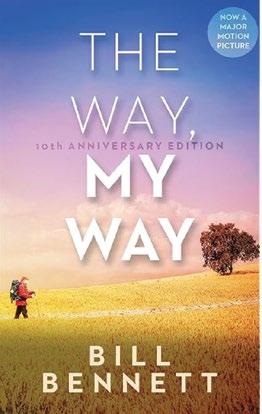
The Way, My Way is based on Bill’s bestselling memoir of the same name.
It’s one of the best ever camino memoirs – highly recommended. Download yours online, or order a copy from your favourite bookstore.
Be kind to yourself
Is it time to set a boundary in a personal relationship?
31 actions to look after ourselves and each other. Jump in at any point which speaks to you, or what you’ll enjoy the most!
Take 1 Minute, Take 5 See page 42 for short wellbeing breaks to watch or listen to!
what makes you feel good. Squeeze in some fun, or take a rest.
Send an uplifting message or phone someone.
What is no longer making you feel good? Curate your feed & contacts. Check out calming accounts.
Get rid of 3 things you never use.
Dine under the stars
Set the ambience with music & candles. Look up, take it in, learn about the stars!
give you joy.
journaling your way through the ups and downs.
in Name 3 of your strengths. Write them down.
Check in with a friend who might be feeling lonely or anxious.
Physical activity
Immerse yourself in nature for an added boost.
An attitude of gratitude
Write down 3 things you are grateful for.
Is it time for a financial check? sorted.org.nz has some great tools.
posture, better sleep, gaining bone density. Try hand weights!
How about learning about different calendars. Check out the Chinese lunar calendar!
Make someone’s day
Share produce, compliment someone, give up a parking spot.
20
How’s your garden growing?
Create an inside herb garden. It’ll add freshness and flavour to your meals.
dry brushing To wake up your skin in the morning, start gently for 3 minutes, followed by a soothing oil.
Shakti mats may sound like torture but once you get past the discomfort, pain becomes payoff https:// shaktimat.co.nz
Reading poetry has many benefits. There are lots of poetry websites, or read favourites old and new!
Meal planning can make you feel in control & on budget. Dust off your recipe books, or join some of the online forums. 28
No screen night
Try Cluedo or Cards Against Humanity! Make snacks too for a great night in.
How has your month been going? List your successes & what you need to reset.
You are doing your best! Sit with that feeling. 31
Kintsugi reflects the philosophy of embracing the flawed. Have a go -there are courses, books, or google it! Carers NZ
To learn more or join our network visit www.carers.net.nz
0800 777 797 | centre@carers.net.nz www.facebook.com/CarersNZ
We're all aware of the growing threat of scams. Often they happen online, but we can also be taken advantage of in person. Staying informed, and reporting unusual activity, protects us all.

With scamming on the rise, it’s hard to know who and what to trust, especially as techniques become more sophisticated.
If you’ve ever been the victim of a scam, don’t beat yourself up about it. Scammers are trained to take advantage of people, and have fooled even the most savvy among us.
Being aware and prepared is the best safeguard, and with this in mind, we’ve put together a list of tools, links and advice that you can use to help keep you and your finances safe.
Netsafe has great tools and guides at its website for scam prevention. This tool will check websites and links to see if they are legitimate: https://checknetsafe.nz
Get set up for safety guides, tailored specifically for older adults in Aotearoa, are a variety of user friendly resources including instructional videos, printable booklets, and pamphlets. They cover topics such as how to spot a scam, how to safely secure your devices, safer online shopping, banking and investing, and many more! https://netsafe.org.nz/olderpeople/
Swapping anecdotes and tips while learning alongside others can help you become more savvy in spotting a scam. If you’re an older person wanting to gain tech confidence, check out SeniorNet. Their training is carried out in small informal groups and hosted in their Learning Centres and other public venues such as libraries and halls. https://seniornet.nz/
Consumer NZ
https://www.consumer.org.nz/articles/scams
Consumer Protection
https://www.consumerprotection.govt.nz Search scams
Commerce Commission
https://comcom.govt.nz Search scams
Department of Internal Affairs https://www.dia.govt.nz/Digital-Safety
Banks have a lot of comprehensive information on how to spot scams. Check in regularly - as scammers shift their methods, banks update their information. ASB
https://www.asb.co.nz Select 'Scan Hub' on the main menu.
ANZ
https://www.anz.co.nz Search 'scams and fraud'
BNZ
httpswww.bnz.co.nz Search 'latest scams'
Heartland Bank
www.heartland.co.nz Select ‘Help from the menu then ‘Online Security’ Kiwibank www.kiwibank.co.nz Search 'types of scams'
SBS www.sbsbank.co.nz Search ‘security’
The Co-operative Bank www.co-operativebank.co.nz Search 'common banking scams'
TSB
www.tsb.co.nz Search ‘security tips’ Westpac www.westpac.co.nz Search ‘safety and security’
The Financial Markets Authority (FMA) has a list of warnings and alerts on its web page with the names of businesses or individuals to be wary of, for those planning to invest. Select 'Scams' from the menu. www.fma.govt.nz/library/warnings-and-alerts/ New Zealand Banking Association (NZBA)
The NZBA has a lot of useful information on fighting financial crime. Learn more at www.nzba.org.nz Search ‘is it a scam?’
Never reply to emails or phone calls asking you to confirm your bank or credit card details. Legitimate organisations will never ask you to do this.
If you’re buying goods online, check that the vendor's billing process is secure (characterised by https:// and a padlock symbol in the website address). Check that the business has a physical address and telephone number.
Research any firms that you’re dealing with. Use the Companies Register companiesregister.companiesoffice.govt.nz/ to check if they are legitimate.
Don’t trust cold callers promising bargain deals or riches if you sign up instantly, or text messages or calls mimicking someone you know, saying that they are in financial trouble. Legitimate companies will give you time to do your research. Check if the text is coming from an actual family member or friend by contacting them through another channel.
If you think you’ve been scammed, report it to Police. If you’ve handed over your bank details, contact your bank and immediately suspend your account. Fraudulent credit card transactions can sometimes be reversed.
If you think you’ve been scammed, contact your bank straightaway. You may also report online fraud and scams to Netsafe, investment scams to the Financial Markets Authority, or cybersecurity issues to CERT NZ.
Life can be challenging, but for some of us, our mental health can be seriously affected. If this sounds like you, you’re not alone.
By Tricia Hendry
Those with health issues and family carers don’t have to face overwhelming or dark times without help or support.
In times of stress, when thoughts or feelings get intense, finding someone to talk to can help.
Who could you talk to?
People you are close to and trust, such as whānau, family or friends
Others you know facing similar concerns
Carers NZ – call 0800 777 797 weekdays or email us at centre@carers.net.nz
Your local doctor or nurse
A counsellor or psychologist
A local family-whānau support service worker
A cultural or spiritual elder
A helpline
Not everyone will understand. If the first person you talk to makes you feel worse, try talking to someone else.
How could you start off a conversation?
“There’s something I need some help with right now. Have you got a minute to listen?”
“I’ve been getting way too stressed lately. How do you cope when you’re really anxious?”
“I haven’t been feeling myself lately. I’m pretty low and angry most of the time. Where do you think I could get some support?”
“SOMEONE REALLY LISTENING TO ME MADE A BIG DIFFERENCE. I’D NEVER BEFORE TOLD ANYONE HOW HARD THINGS HAD GOT.”
– MARI
“THINGS WERE BECOMING UNMANAGEABLE, BUT I HAD TO KEEP GOING. THEN ONE DAY I COULDN’T. I HAD TO STOP PRETENDING I WAS COPING. THE LIGHT HAD GONE OUT.”
– ANNE
Free support helplines available day and night, 7 days a week
These all offer trained counsellors or support workers to talk to confidentially and without judgement.
1737 Need to talk? Free call or text 1737
Lifeline 0800 543 354 (0800 LIFELINE) or free text 4357 (HELP)
Samaritans 0800 726 666
The Depression Helpline 0800 111 757 or free text 4202
Youthline 0800 376 633
Healthline 0800 611 116 – for advice from experienced health staff
The Alcohol Drug Helpline 0800 787 797
Suicide Crisis Helpline – 0508 828 865 (0508 TAUTOKO)
Download the Mental Health Foundation's comprehensive resource, Helplines and Local Mental Health Services, at mentalhealth.org.nz/helplines
We often find it hard to ask for or accept help. We usually expect a lot of ourselves, but letting others support us through difficult times can help improve our mental wellbeing – especially if we feel overwhelmed and out of balance.
Carers NZ’s Helpline can provide both a listening ear and information about your local help and support options, including some you may not have thought of.
Call us on 0800 777 797 weekdays for confidential support or email centre@carers.net.nz
We also provide a hub of practical carer support resources and tools at our website at carers.net.nz including ideas for prioritising self-care and dealing with stress and burnout.
A NZ Guide for Carers outlines government help family carers can access and also deals with other matters relating to carers. Getting support to sort out practical issues can help to reduce the pressures carers can feel.
“I BEGAN TO SEE THAT CARING FOR MYSELF WAS CARING FOR MY SON AND IT WAS TIME TO GET SOME HELP FOR ME. THANK GOODNESS I DIDN’T PUT IT OFF ANY LONGER. IT WAS A RELIEF WHEN THE LIGHT CAME BACK ON.”
–
JANINE
Your mental health may have got to the point where most days seem overwhelming and too much to handle. You may be experiencing high anxiety or increased irritability and anger. You may be exhausted and feeling flat and unable to enjoy things. Perhaps you’re finding it hard to sleep. You might have negative thoughts or feelings that keep coming at you. If you live with a mental health condition, it may have worsened. You might even experience some thoughts about suicide.
Take action to get help
Visit your doctor as soon as possible. Be honest with them and ask for assistance.
Consider talking with a counsellor or psychologist. If you are registered with a local mental health service, contact them for an appointment. If it's urgent, say so.
For help to find a GP, a counsellor or psychologist, or local community mental health services, visit the Mental Health Foundation website, mentalhealth.org.nz
“I DIDN’T BELIEVE I COULD GET OUT OF THE HOLE I’D FALLEN INTO, BUT I HAVE. IT TOOK TIME, BUT NOW I COPE MUCH BETTER. I’M USING SOME NEW STRATEGIES AND THEY’RE KEEPING ME WELL. I’M STILL MY WIFE’S PRIMARY CARER, BUT I SHARE THE LOAD MORE.”
–
JASON
IF YOU ARE AT IMMEDIATE RISK OF HARMING YOURSELF OR OTHERS
If you’re having thoughts of suicide, or possibly of hurting someone else, know that you can get through this intense time. Focus on coping for one minute, one hour or one day at a time and find some urgent support to keep safe.
Reach out now to someone you trust, or perhaps call a helpline. Tell them you need their assistance to get immediate help. Avoid being alone at this crisis time.
Contact emergency services on 111. Be direct about what you’re experiencing. Ask for urgent mental health assistance to keep you safe, or ask someone to call them on your behalf.
Or, go directly to your local health emergency department or medical centre. Take someone with you, if possible. Or contact your local mental health crisis service, which can arrange to make contact urgently.
You might like to also check out our article We Are Not Machines. It provides practical information for carers about preventing and managing high stress and burnout. You'll find this article at carers.net.nz or phone 0800 777 797 to ask for it to be sent to you.

A range of advisory and counselling services are available in New Zealand. Many of these can be accessed by phone, text, or email. Don’t feel alone if you’re struggling – reach out for help.
1737
AIcohol Drug Helpline
Free call or text 1737 to speak with a trained professional counsellor at any time 24/7. Free counselling service: depression, anxiety, suicidal thoughts, feeling down or overwhelmed. Highly recommended as first point of contact for callers seeking help.
0800 787 797 or text 8681 (24/7); online chat at https://www.alcoholdrughelp.org.nz If you are concerned about your own or someone else’s drinking or drug taking, the Alcohol and Drug Helpline can assist with information, insight and support.
Anxiety New Zealand Helpline 0800 269 438. Online therapy and help resources available. https://www.anxiety.org.nz
Asian Helpline Nationwide free and confidential services by phone from Monday to Friday between 9am-8pm. The Helpline is available in eight languages, including Mandarin, Cantonese, Korean, Vietnamese, Thai, Japanese, Hindi and English. 0800 862 342. Or, text 832 to speak with a professional for confidential advice and emotional support from Monday to Friday between 9am-5pm.
Depression Helpline 0800 111 757 or free text 4202 to talk to a trained counsellor for support or to ask any questions.
www.depression.org.nz/get-help
EAP Services Employee Assistance Programme – providing practical assistance to employees when personal or work issues arise that may impact on their ability to do their job or affect their wellbeing (confidential counselling services across NZ and internationally). Freephone: 0800 327 669 https://www.eapservices.co.nz
Gambling Helpline
24-hour Freephone: 0800 654 655 https://www.gamblinghelpline.co.nz or text 8006.
Lifeline 0800 543 354 (0800 LIFELINE). Lifeline trained counsellors deal with many kinds of issues including psychological and emotional distress, financial and work issues, marriage and family/whanau problems and with callers who are lonely, ill, depressed or the victims of violence or abuse. Text ‘Help’ to 4357 or visit https://www.lifeline.org.nz
Rural Support Trust Helpline 800 787 254. Chat to someone who understands, because they’ve been there. https://www.rural-support.org.nz
Salvation Army 0800 53 00 00. Supporting families and individuals in need with budgeting advice, food and clothing assistance, life skills programmes and other comfort and support. https://www.salvationarmy.org.nz
Samaritans 0800 726 666. Confidential, non-religious and non-judgemental support to anyone who may be feeling depressed, lonely, or may be contemplating suicide. https://www.samaritans.org.nz
SPARX An interactive self-help online tool for young people with mild to moderate depression and anxiety: https://www.sparx.org.nz 0508 477 279 or free text to 3110
Suicide Crisis Helpline 0508 828 865 (0508 TAUTOKO)
The Lowdown A space created with rangatahi, for rangatahi. Find support for your haora, identity, culture, and mental health. https://www.thelowdown.co.nz
Victim Support 0800 842 846. Free 24/7 support. https://www.victimsupport.org.nz
What’s Up 0800 942 8787 (0800 WHATSUP) For 5 - 19 year olds. Available 11am – 11.00pm M-S
Online chat Monday-Sunday 11am-10.30pm at www.whatsup.co.nz A safe place for tamariki and rangatahi to talk.
Yellow Brick Road Northern Region, 0800 732 825; Central North Island, 0800 555 434; South Island, 0800 876 682. Supporting families/whanau towards mental wellbeing. yellowbrickroad.org.nz
Youthline Mental Health and Addictions Service. Youthline works with young people, their families and those supporting young people. Call 0800 376 633; free text 234; email: talk@youthline.co.nz or online chat at https://www.youthline.co.nz























































































































If you’ve had COVID-19, and are experiencing symptoms that linger for more than 12 weeks, you may have 'long COVID'.
By Angelique Kasmara




























































This can be a disheartening experience for sufferers. The difficulty in getting a correct diagnosis, having to live with and manage the condition, and that symptoms are largely invisible, can all contribute to feeling lonely and helpless.
Although there is still much that is unknown about how long COVID takes hold, how to recover from it, and preventive measures, research has progressed since the early days of the pandemic.
More people are reporting their symptoms, and health providers are more able to recognise the indicators and understand what long COVID looks like.
With studies showing that 10-20% of people infected by COVID-19 may go on to develop long COVID, these figures suggest that around 200,000 New Zealanders may be currently living with or have had long COVID (adults and children).

Long COVID is broadly defined as a chronic condition characterised by symptoms that continue or develop after an acute COVID-19 infection.
According to Health NZ, most people can expect to recover from COVID-19 within a few weeks, although a full recovery can take up to 12 weeks.
For those still experiencing symptoms for weeks or months after the typical recovery period, you may have long COVID.
The presence of lingering symptoms can significantly impact the sufferer and their whānau.
In New Zealand, Health NZ says long COVID is divided into two groups:
Ongoing symptomatic COVID-19 — you can experience signs and symptoms of COVID-19 for 4 to 12 weeks after your initial infection.
Post-COVID-19 syndrome — when you have signs and symptoms that develop during or after an infection. These continue for more than 12 weeks and are not explained by any other conditions.
It’s worth noting that individual symptoms can vary enormously between people. Long COVID can affect any system of the body.
For more info visit info.health.nz - search for long COVID.
Because much is still unknown about the condition, long COVID is still often ‘self-reported’ as there is no specific test for it. As well as complexities around an official diagnosis, there are many symptoms for long COVID; these are also common in many other conditions.
Talk to your General Practitioner (GP)
Seek an initial consultation, and although your GP or other health provider won’t be able to provide a specific test for long COVID, they can do general health checks, prescribe pain medication, issue medical certificates for work, and refer you to specialists. Specialist support may include physiotherapy, occupational therapy, cardiologists, respiratory physicians, immunologists and others. Some GPs are now very clued up about long COVID and supportive, while others aren’t. If your GP is dismissive of your symptoms, seek a second opinion.
Disability support
You may be eligible for a range of benefits and services. Financial support: workandincome.govt.nz
UP
Check Whaikaha funded support at whaikaha.govt.nz
Organise a needs assessment at www.nznasca.co.nz
Other resources
longcovidsupport.co.nz Developed by patients, for patients.
The Ministry of Health offers some introductory information for managing long COVID. health.govt.nz
Healthline (0800 611 116) and the COVID-19 health advice line (0800 358 5453) are free to call.
Join a community
Long COVID Support Group Aotearoa can be found at facebook.com/groups/nzlongcovid or longcovidsupport.co.nz
Complex Chronic Illness Support: ccisupport.org.nz
ME / CFS / Long COVID Support: mesupport.org.nz

Start with 1 minute then try 5, and before you know it you might plan for a day, a week, or longer.
Try a bite-sized break! Find one that suits your moodjust follow the link and click on the Take A Break button!



Respite, time out, whatever you call it - give yourself a break!
Take 1 Minute Take 5 is a fun feature at Carers NZ's websitethere are options galore.
Having some time out can benefit our health and wellbeing.
It can encourage independence, build self-esteem, and provide a broader range of social interactions.
Interesting breaks and activities can be enjoyed together or just watched on your own, when it's not so easy to get out!
carers.net.nz/respite-wellbeing
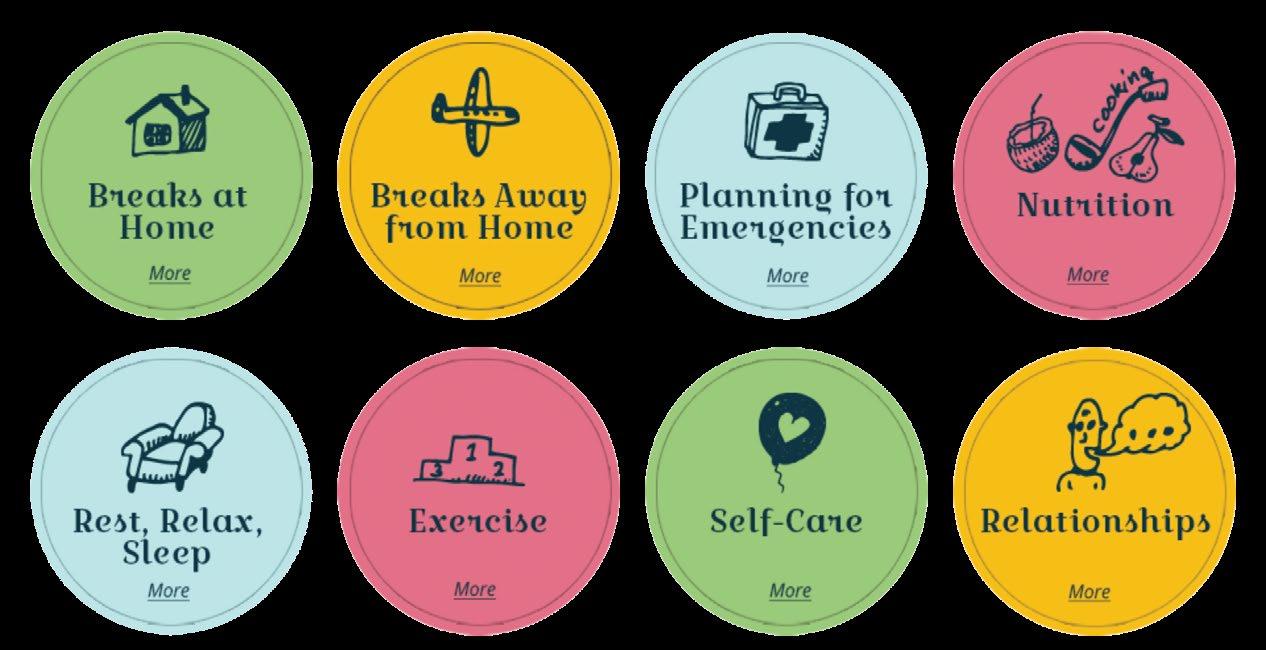

All of Carers NZ’s services, events, and information are free for those who need them. Please help to keep our support free by considering a donation –see page 12. Thanks for helping!
When I first caught COVID in 2022, I was very healthy and active. I walked, cycled, swam, did yoga and played ball games with my then 9 year old. Although I quickly recovered from the acute infection, the fatigue went on … and on .... and new symptoms arrived in the form of pain in my shoulders and knees. I didn’t make a full recovery until over a year later, and it was only in hindsight that these symptoms pointed to long COVID. My GP, who had seen me several times over this period, agreed that the timing suggested it was the most probable cause of the various health issues she checked me for.
My initial infection was mild, with a moderate fever, a cough, and insomnia. These symptoms lifted quickly, but then inflammation spread through my back. A few months later, it had moved to my shoulders, and then my knees. I didn’t have brain fog so was able to work in front of a computer, but for months, even simple tasks such as hanging out the laundry or vacuuming exhausted me and afterwards I’d have to lie in bed for half an hour. I couldn’t wear a lot of my clothes, since I wasn’t able to reach around to zip them up.
During this time, my late Dad, who had Parkinson’s, needed extra care as he was recovering from a head injury, so I’d visit him daily to assist with his exercises and general needs, then go home and have a rest.
The first time I saw my GP about the fatigue and pain in my joints, she sent me for blood tests. The results indicated that apart from slightly raised inflammation levels, I was in sound health. With little to go on, she referred me to a physiotherapist, who monitored my progress for about six months and made adjustments to the exercises he gave me. During this period, arthritis, polymyalgia rheumatica and other conditions were ruled out. He said my condition was a mystery.
Right up to the time my long COVID lifted, there were many moments where I felt I’d be like this for the rest of my life. However I remained determined to do what I could. Hot showers and massages helped with the joint pain, and I kept to a mostly anti-inflammatory diet, did the physio exercises, sat in the sun for vitamin D, had a few acupuncture treatments, and went for regular short walks. About 10 minutes a day was all I could manage then, but these days, the short walks have turned into one hour hikes.
CARMELA, TE ATATU
If you have long COVID or are a former sufferer, consider participating in the national long COVID registry, Mātauranga Raranga. It was set up to give researchers an accurate picture of the condition and how it impacts New Zealanders. You will be asked to fill in surveys (either online or by telephone) on aspects such as your use of health services, symptoms and their duration, and the effects of long COVID on your personal, social and work lives. Your details are kept confidential. lcregistry.auckland.ac.nz
Anxiety
Brain fog
Breathing difficulties
Depression
Dizziness
Fatigue
Gut disturbance
Heart troubles
Insomnia
Loss of smell
Lost of taste
Mast Cell Activation Syndrome (MCAS)
Memory issues
Migraines and headaches
Nerve pain
Post Exertional Malaise (PEM)
Postural Orthostatic Tachycardia Syndrome (POTS)
Sensory overload
Long COVID Support NZ has a good page that lists many of the over 200 symptoms that are linked to long COVID. These include the most common ones, plus articles written by patients. All information is fact checked by medical professionals. longcovidsupport.co.nz
Ally works for the Commerce Commission, one of New Zealand's 150+ CareWise carer friendly employers.
Ally helps to care for her Dad, whose health has slowly changed over the last 10 years due to dementia.
As a carer who is also in paid employment, Ally says the main thing that has made a difference in her role in the Commerce Commission’s in-house recruitment team is that supportive managers have given her the time she needs to assist her Dad.
Ally has three sisters. Supporting her Dad has been a family affair.
"My sisters and I try to share the load, but inevitably our oldest sister, who is Dad’s Enduring Power of Attorney, has been impacted the most. We all help her as much as we can."
She says having a manager who understands her need for flexibility has been crucial.
"Dad has had to come first at times."
Ally also has other roles as a wife and mother.
"We have a beautiful wee boy who is two, and I have every second Friday off to spend with him."
Ally's aunt has also provided plenty of help; her Dad lived with his sister for a year when it was no longer safe for him to drive.
“We started to notice Dad struggling with his physical abilities and coordination. He couldn’t buckle himself into the car, he began to miss the golf ball on the golf course and, once a very capable builder, he could no longer do simple jobs."
"We were very concerned, but the early stages of dementia can be hard to navigate because you are dealing with an adult who can’t or won’t see that something is wrong."
"Things came to a head when Dad ran out of money, which can happen to dementia sufferers as they lose the ability to manage money.”
The family eventually got a diagnosis for their Dad after an appointment with a geriatrician.
Ally says that even though they knew something major was going on, the diagnosis was hard to process.
Her Dad moved into a residential home for several years, but in 2022 he was hospitalised for six weeks and the family needed to find a facility offering dementia care.
His weeks of hospitalisation required a team effort, with the sisters and their aunt taking turns to be with Ally's Dad "as he was very confused and aggressive".
Her Dad now lives in a secure dementia support environment, with frequent visits from his sister and daughters.
"We are each other's biggest support, and my husband also is amazing with Dad and with looking after me when things become overwhelming!"
Ally's advice for other carers who are juggling employment with caregiving and family life is to look after their own wellbeing, too.
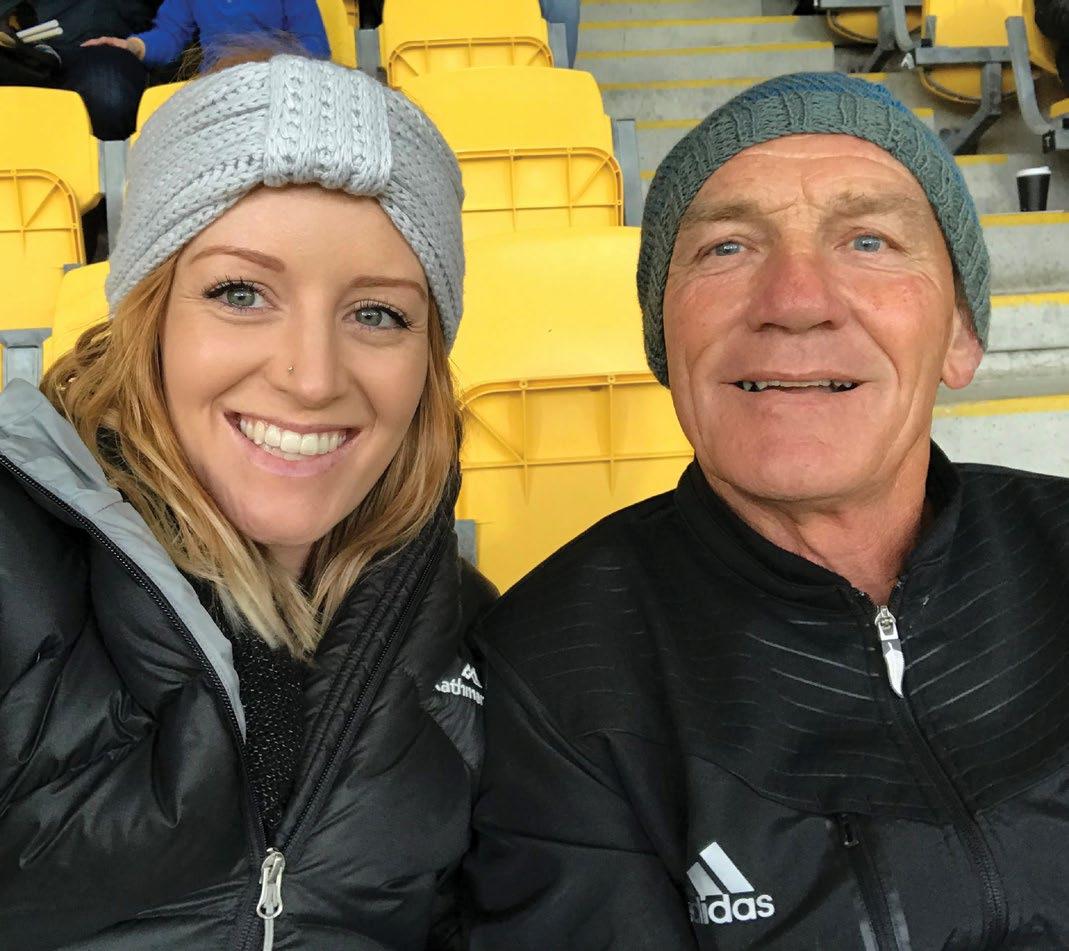
"You have to look after your own wellbeing, too. You can't pour from an empty cup."
ALLY, COMMERCE COMMISSION
"You can’t pour from an empty cup.”
The Commerce Commission is one of 150+ CareWise workplaces in New Zealand, spanning 600 locations and employing more than 100,000 staff.
1 in 8 of every workplace has caring responsibilities, like Ally. Since becoming CareWise, the Commission has hosted a 'lunch and learn' for caring staff, and ensures its workforce receives regular information to support their caring roles.
Employers interested in Carers NZ's CareWise programme can join free at carewise.net.nz
Carers NZ will keep you informed about issues important to family carers, and provide practical one to one support for caring staff. We can also help you lead carer focus groups in your workplace! Contact us on 0800 777 797 or email centre@carers.net.nz
Almost 90% of New Zealand's 1m+ family carers are workforce age15 to 65.
But caring commitments can make it difficult to participate in paid employment, even part-time.
Family carers supporting others are doing an invaluable role. Their mostly unpaid labour has an annual economic value of $17.6 billion, according to Infometrics. But carers often want to participate in paid employment if they can.
It allows them to earn, to use their skills and qualifications, save for retirement, and be amongst colleagues and society. Some carers are on government benefits and want to transition away from this. Every situation is unique!
Carers NZ launched its Work + Learn programme in 2023 and has since worked with hundreds of family carers thinking about their employment options, and planning for the future. For many, it's essential to find flexible work that can accommodate their caring role.
Evaluate where you are and where you want to go (your goals)
Develop a plan which may include training, volunteering, temporary positions, seeking a new qualification, or applying for permanent positions
Create an appealing CV, write polished cover letters, get interview ready
Encourage you and keep you on track – the journey is different for everyone and we will help you navigate your own path through this
Assist you to look for work opportunities and set up and use TradeMe Jobs, Seek, and other platforms
Often employers are well aware that at least 1 in 8 of their existing staff have caring responsibilities. And many welcome applications from family carers to fill other vacancies.
If you'd like to explore your employment options, maybe Work + Learn is right for you!
Easy steps to join the programme
Contact us via email with your name and contact details at carewise@carers.net.nz, or phone 0800 777 797.
If you have a draft CV, attach it to your email in a form that can be edited, as it will give us a good idea of your background.
Your CV doesn’t have to be application ready - it's just a way of providing us with information about your qualifications and experience.
If you don’t have a CV, no worries - we'll help you create a good one!
Have a think about your hours of availability – the more flexibility you have with this, the easier it will be to find employment.
After we receive your email, we'll review your information and contact you to discuss your situation and work goals. That’s all you need to do to enrol in the programme!
From there, we'll walk with you step by step at your own pace. If you want to withdraw from the programme at any time, no problem, all we ask is that you communicate this to us.
Visit carers.net.nz to look at our comprehensive Work + Learn toolkit!
1 million + New Zealanders care for friends and family members who are unwell or have an ongoing condition or disability. Almost 90% of carers are workforce age. They can struggle to juggle employment and caring for loved ones. CareWise can help.
Cookbook author Alice Taylor dedicated Alice in Cakeland to her Mum and Dad, and to her Pop, “the only person who enjoyed eating cake more than me!”
Alice says she used to listen to movie soundtracks as a kid and imagine being a successful cookbook writer. We enjoyed reading about Alice and her family, and Alice’s gorgeous recipes: slices, cakes, desserts, and savoury meals. It was hard to choose which ones to share, but they live up to the book tagline
“easy, affordable, delectable baking”.
This garden cake celebrates any of the fruits and vegetables that are in season or lying around.
You can use this recipe to make a classic carrot cake with cream cheese icing. Or, you can use zucchini, beetroot, parsnip, apple – whatever you have that you would enjoy. My favourite is the combination in the recipe: zucchini and carrot, with a touch of fennel.
½ cup grated zucchini
1 cup grated carrot
1 cup neutral oil – I use canola
1 cup caster sugar
Zest of 1 lemon
4 eggs
2¼ cups self-raising flour
Pinch of ground fennel, optional
Pinch of ground ginger, optional
More Than Whipped Cream (see separate recipe)
Preheat the oven to 180ºC fan bake. Grease and line a 21cm cake tin. Place the zucchini in a Chux cloth or tea towel and squeeze out as much of the liquid as possible.
In a bowl, whisk together the zucchini, carrot, oil, sugar, lemon zest and eggs. Add the flour and the fennel and ginger, if using, and whisk until just combined. Pour into the prepared cake tin.
Bake for around 40-55 minutes, or until a skewer inserted into the middle comes

out clean. The cooking time depends on the size of your tin, and the oven. Spread over More Than Whipped Cream and decorate as wished.
Makes 1½ cups
This is my favourite sort of cream to serve with cake or pudding. It is incredibly simple and more stable than whipped cream. I especially love to use crème fraiche as it cuts through the sweetness of puddings and cakes beautifully.
200g crème fraiche or mascarpone
150ml cream
2 tbsp icing sugar, optional Whichever flavourings you wish – I like vanilla, cinnamon, or cardamom
In a bowl, whisk together all of the ingredients until thick and combined. You can do this by hand or with an electric beater.
Set aside in the fridge until ready to use. If you would like to make a quenelle (a nice spoonful), then keep in the fridge for at least 30 minutes and use a spoon that you first heat under hot water and dry.
No zucchini? Not to worry. Replace with more carrot. Other squashes similar to zucchini would also work. Same goes for no carrot –replace with more zucchini.
Try adding 2 tsp ground fennel to the cake batter.
You can bake this in a loaf pan and serve it with butter and a sprinkle of sugar.
Serve with whipped vanilla mascarpone.
Cream cheese icing and orange zest works beautifully as well.

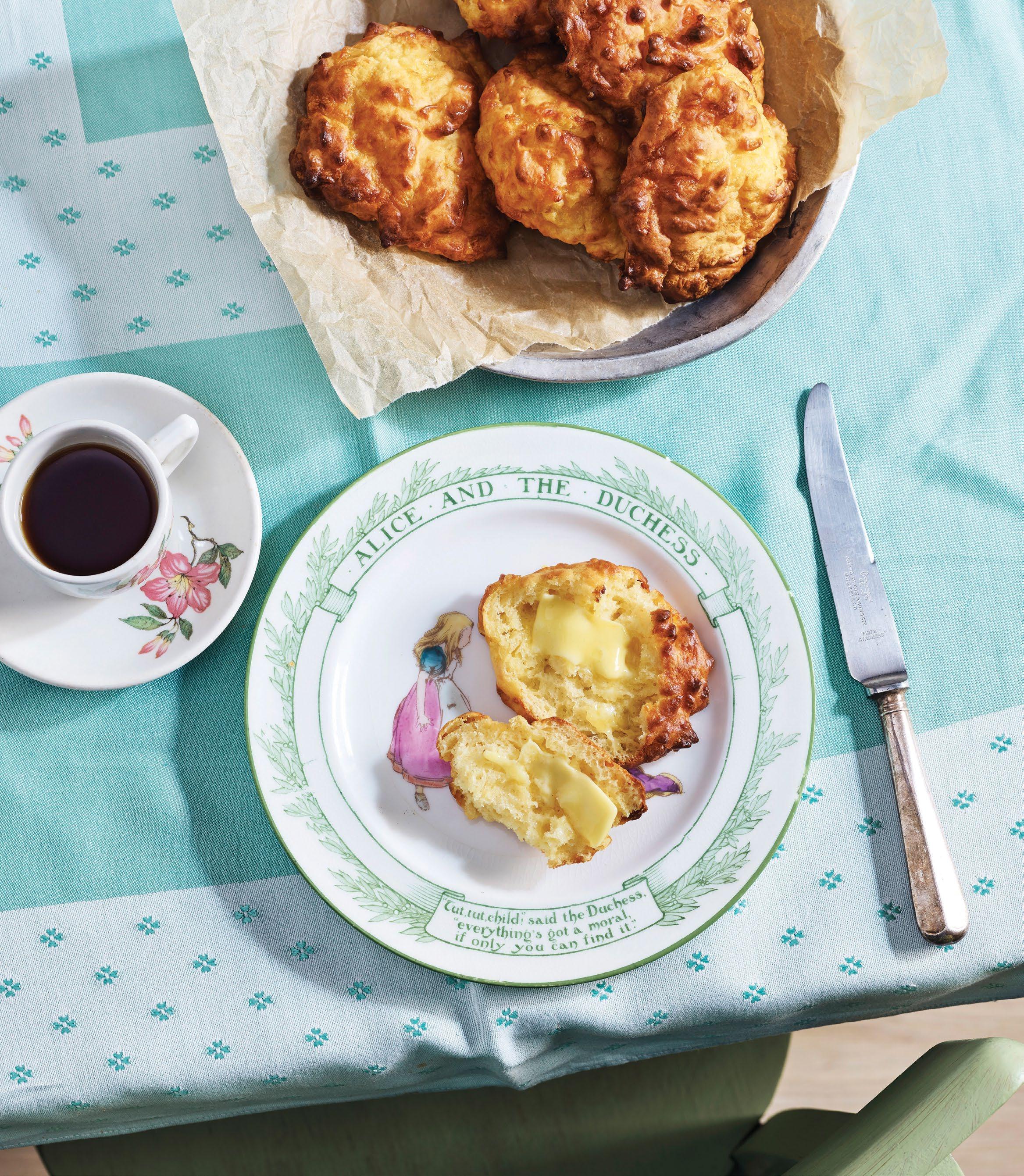
Makes 10
This recipe is from my grandmother, who was one of the best bakers I have ever known. She would make these cheese puffs often in her holiday home in Queenstown, and we would enjoy one (or many) with a hot cup of coffee in the morning. It is one of my fondest memories and I know she would be so excited to know that there are people baking her cheese puffs for their loved ones. These are best enjoyed warm from the oven.
To make scrolls, add an extra ¼ cup of flour so the mix is less sticky to the touch. Roll out to 1cm thick, and evenly spread over a tub of pesto and crumble a block of feta. Roll, slice into 8 pieces, break apart and spread out on a tray. Bake for 15 minutes.
1 cup all-purpose flour
2½ tsp baking powder
Pinch of salt
1½ cups grated cheese
1 egg
Around ½ cup whole milk
Preheat the oven to 210ºC fan bake. Lightly grease a baking tray.
Sift the flour, baking powder and salt into a bowl. Add the cheese and mix through.
In a separate bowl, whisk together the egg and milk. Add the egg mixture to the cheese mixture and mix through with a knife. You can always add more milk if the mixture is too stiff. Too much makes the mixture sloppy and it spreads on the tray before it starts rising.
Drop large spoonfuls on the prepared tray. Bake for around 15 minutes, or until golden.
Serve warm from the oven.
Serves 4-6
This recipe uses smoked salmon instead of fresh fish, which reduces any concern around overcooking fresh fish. I was inspired by the flavours of kedgeree, and incorporated fennel because fennel and salmon is a match made in heaven. You can line the base with pastry and blind bake it, but what I love about this pie is how simple it is so I make it with a pastry top only.
Sauce
75g butter
½ tbsp curry powder
1 tsp fennel seeds
½ cup all-purpose flour
4 cups whole milk
2 tbsp mustard
Pinch of salt
Pepper
2 cups chopped spinach
Splash of oil
1 bulb fennel, finely sliced
1 onion, finely diced
Pie
6 hardboiled and peeled eggs
500g smoked salmon - or any smoked fish
2 sheets puff pastry
1 egg beaten with 1 tbsp cream, for egg wash
Preheat the oven to 200ºC fan bake.
To make the sauce, melt the butter in a medium saucepan over a medium heat. Add the curry powder and fennel seeds and fry off for 2 minutes, until fragrant. Add the flour and cook off for 1 minute. Slowly whisk in the milk, bit by bit. Reduce the heat to low and cook until thickened, whisking occasionally. Once thick, remove from the heat and stir in the mustard, salt, pepper and spinach. Allow to cool down slightly as you prepare the rest of the components.
Add oil to a large pan and fry off the fennel and onion with salt and pepper. Combine the sauce with the fried fennel and onion.
To make the pie, chop the eggs in half. In a dish at least 2.5cm deep, flake the smoked salmon and lay down the halved eggs on top. Pour over the sauce. Lay the

To hardboil the eggs, simply boil in water for 7 minutes then place in iced water before peeling.
pastry over the top and crimp with a fork. Cut a hole in the pastry and decorate as wished. Brush with egg wash and season with salt.
Bake for around 30 minutes, or until golden and the pastry is cooked. Allow to sit for 10 minutes, then serve.
We have four copies of Alice in Cakeland to give away. See our entry form, page 8!

High Person displays changes to 3+ warning signs and vocalises sympathy towards a movement/political stance/ religion which is notably different to their historical beliefs or passions.
Moderate Person displays a change in 2+ warning signs.
Low Person displays 1 or 2 of the sign typically, but no change to behaviour noted.
Very Low Person has no indication of any vocalising of sympathy towards a group or movement.
Very High Person displays changes to 3+ warning signs AND in addition of High above, includes signs of planning and gathering of dangerous weapons. Probability of
Likelihood
Highly Likely Person accesses online content, frequents chat rooms and has dynamic relationships with people online, unsupervised.
Likely Person accesses online content, social media and occasionally meets people in chat rooms or exchanges comments with strangers online, unsupervised.
Possible Person accesses the internet without support, limited to online videos of a nonviolent nature.
Unlikely Person accesses online content as part of entertainment with no social media engagement and/or with supervision/ support only.
Rare Person doesn’t access online content and natural networks are well documented and known to whanau and support staff.
Radical groups are targeting vulnerable adults by befriending them online in efforts to convert them gradually to be sympathetic to their cause and even incite violent behaviour. The New Zealand Security Intelligence Service and the Department of the Prime Minister have contracted several stakeholders to help make Aotearoa aware of the risk and how to identify warning signs and what to do about it.
Explore Hāpainga Ora have developed content that’s targeted for you, the family carer, and your loved one to help prevent and counter this new threat.
The individual behaviours and activities listed are concerning when they occur alongside other activities. These behaviours on their own may not be considered signs that violent extremism grooming has occurred. The most important indicator is a change that you’ve observed.
• A change in opinion, typically out of context.
• Accessing online violent videos / media and change of music choice.
• Vocalises sympathy for terrorist groups.
• Becomes suspicious and protective of their online history.
• Uses fake names online.
Awareness
Associations & Relationships
• Asks about Virtual Private Network options.
• Creates stories to try to explain suspicious behaviour or activities.
• Abandons employment without notice.
• Withdraws from normal circle of friends because they “have made new ones” that they won’t openly talk about.
• Stops participating in regular and established commitments.
Unusual Behaviour
Planning
• Withdraws from or abandons close relationships.
• Appears withdrawn or prone to sudden outbursts.
Requests information about particular sites and emblems. Shows an interest in offshore locations where known terrorist organisations exist. Begins to show an interest in dangerous weapons / knives and seeks access to these.
Preparation
Sells or disposes of personal belongings unexpectedly, or with urgency, and shows a disregard for their own wellbeing.
Help is available. If you have concerns that your person or loved one has been contacted by and/ or is being groomed by an extremist group, the New Zealand Security Intelligence Service can help. Scan the QR code or or check out the website, https://providinginformation.nzsis.govt.nz if you are concerned about someone being groomed.
In an emergency, please dial 111 or inform the Police at 105.police.govt.nz.


